
GoNOMAD Travel
Inspiration and links to plan your trip.

Russia: Visiting in 2023
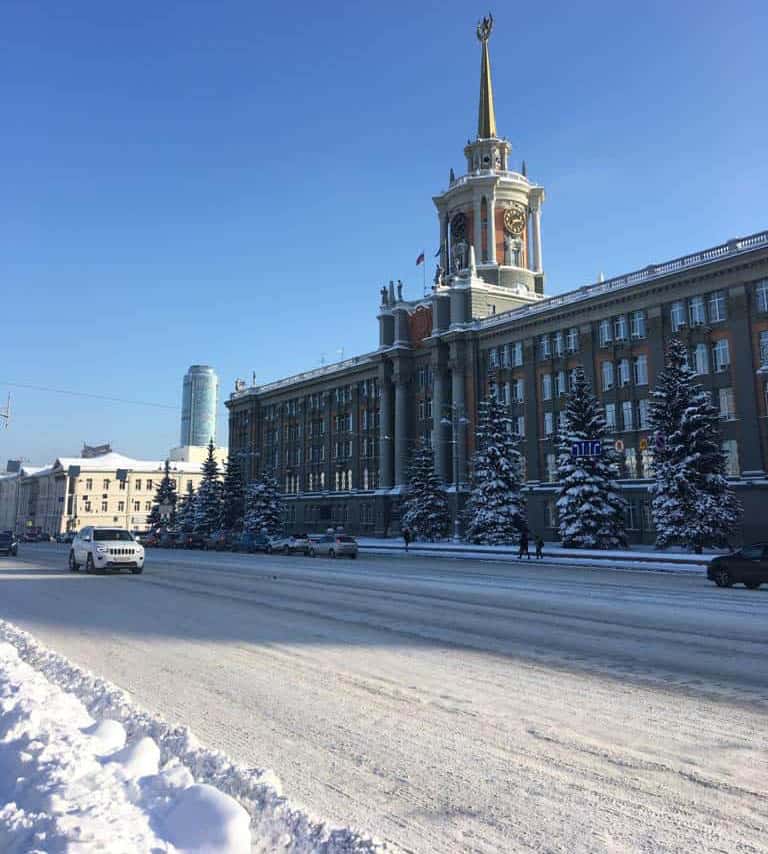
Tourists and Business Travelers Visiting Russia in 2023. Here Is What You Will Find There
By Dr. James Pearce
I’ve been traveling to Russia for over a decade. I’ve got familial ties here and have lived in three different Russian cities . It’s a country impossible to understand without visiting, and its vastness and diversity offer something for everyone. But last February, everything changed.
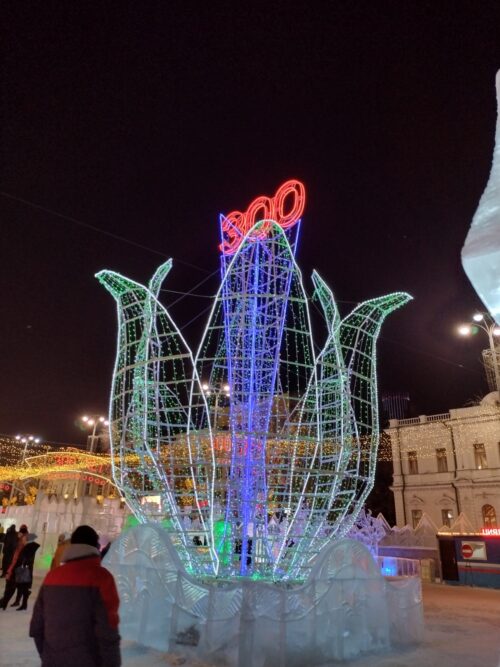
After the war in Ukraine broke out in February 2022, Western boycotts were announced and airline and travel companies suspended their operations in Russia.
It was cut off from SWIFT, the international payment system, and most foreign bank cards no longer work here unless your bank or country uses Russia’s own payment system, MIR.
Overall, the number of foreign tourists in 2022 fell by 90%, and for the few still going to Russia, the trip is a costly headache. Most visitors in 2022 went for work, family reasons or to study.
Harming Reputations
Put simply, many westerners don’t want traveling to Russia to harm their reputation, personally or professionally. I argue that it shouldn’t. Travel should bring people together and not be based on political views.
Moreover, Russia is the world’s largest country spanning nine time zones and bordering fourteen other countries, from Norway to North Korea, across Europe, Central Asia and all the way to the Far East. We ignore and misunderstand it at our peril.
More Visitors from the Middle East and India to Russia
Although tourism from the West fell, travelers from the Middle East and India actually increased along with domestic tourism. China is also expected to post big numbers this year now that it has reopened.
Of course, this won’t make up for the fall in western tourists, and important to note is that few of these countries have condemned Russia’s actions or joined the sanctions. In fact, business is operating as normal – and in some instances strengthening and helping Russia to get around western sanctions.
Unlike before, one must now either fly to Russia from a third country (like Turkiye, UAE, or Armenia ), hop on a bus in Tallinn, or train from Helsinki, which both go to St. Petersburg. It’s also possible to travel by car from a neighboring country with an open border, like Georgia. Each option gives you the chance to explore another part of the world en route you wouldn’t otherwise see.
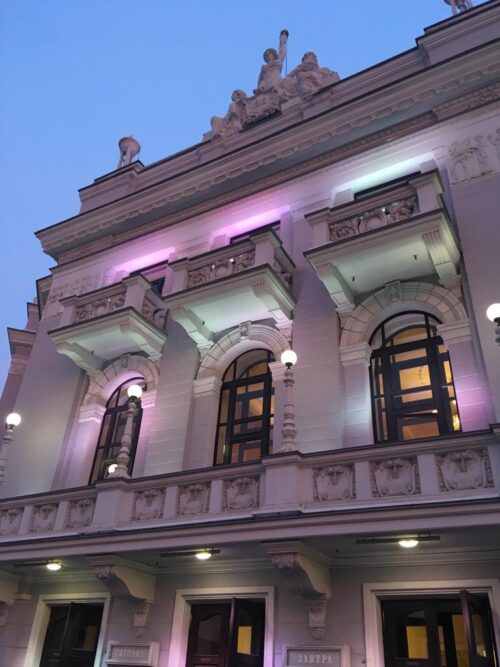
Russia by Bus
If going by bus, one usually takes you to the border, and another will pick you up on the Russian side. On average, the trip takes a total of 7-9 hours, not including border crossing and customs time. About half a dozen buses go daily, and it’s certainly the cheapest way in (as little as £35).
The trains are also relatively frequent, and the journey is shorter, at about 3 hours 30 mins. Tickets are upwards from 100 Euros, however. Flights will vary depending on the airline company, route you take, and location you book from. Turning your VPN on can help you get a cheaper ticket.
Last summer, one German couple chose the bus for their first trip to Russia. It might have seemed like an odd time to go, but not to them. ‘Why not?!’ they said. ‘It’s still a fascinating country. Our friends came recently, and had only good things to say.’
Many travelers report long lines and additional questions at the border. Some I spoke to were waiting for three hours, whereas others got through in fifteen minutes with no questions.
The only real danger here is missing your bus on the other side. Depending on the schedule, the drivers don’t always wait if you get stuck in a long line. In which case, you need to hope another bus is due soon or arrange alternative transport.
Flying through Turkiye to Russia

I chose to fly through Turkiye onto Yekaterinburg in the Ural region, where Tsar Nicholas II and his family were murdered by the Bolsheviks in 1918.
In place of the house where they were murdered now stands a Church in their honor. The flight was full both ways.
Istanbul is also significant in Russia’s history and the modern geopolitical climate. Almost 100 years ago, after the Bolsheviks came to power, hundreds of thousands left Russia through Constantinople never to return. As one journalist recently put it, Constantinople is where history and Russian exile begin.
Turkiye is Full of Russians
On almost every street corner one can hear the Russian language now. As one of the few places Russian citizens can still travel visa-free, hotels are frequently full of Russian guests. There are also plenty of Russian businesses also popping up and new employees or nomad workers in the city’s various cafes and bars.
When I landed in Yekaterinburg, I got through the border in maybe twenty minutes and answered only basic questions. It seems individual experiences are precisely that.
One change from before was the amount of cash I took with me. Most foreigners will have to take enough to last their trip, and either exchange it in a third country or one of a select few Russian banks.
You can still take up to $10,000 in cash, but a new law stipulates that you cannot take any foreign currency totaling more than $10,000 out of Russia.
If you have relatives or a Russian bank account, you can transfer money using Koronapay, Unistream, or Contact. Crypto is also used.
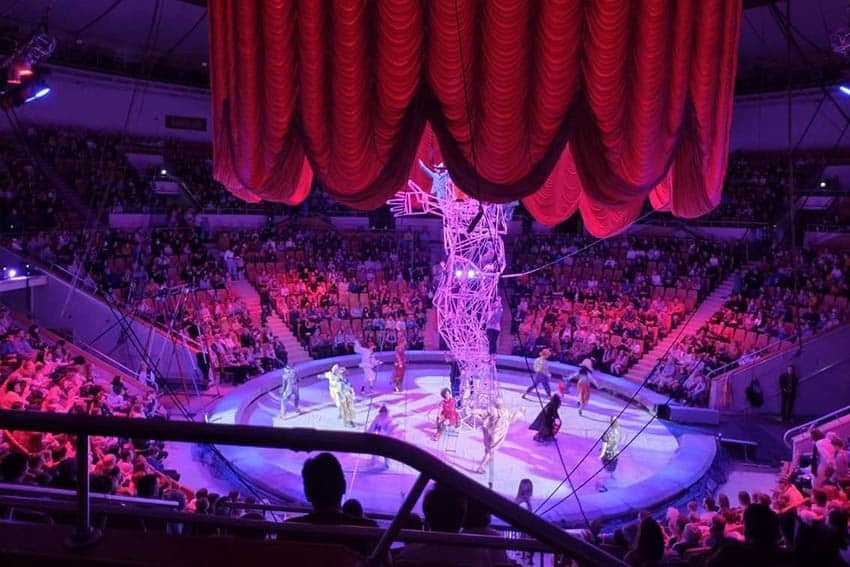
Russian Life Carries On
Despite the war in Ukraine, Russian life appears to be carrying on largely as normal. The appearance of pro-war propaganda is the only visible difference at first and even small towns have been affected. In Suzdal, an ancient and picturesque city adorned with wooden churches and monasteries northeast of Moscow, its many tourists can now buy matryoshka dolls with the letters Z, V and O – symbols of the military operation.

Storefronts that stood vacant after Western brands left are filling up again. Western products have been quickly replaced with domestic equivalents, and the agricultural industry has done extremely well in the last year.
Restaurants, bars, and theaters are all full as well, but what is immediately noticeable are prices; they have gone through the roof. Friends and relatives all speak of how much more expensive things are, although utility bills remain low.
In fact, most people I spoke to were worried about the rising costs, but generally said their standard of living has been unaffected.
One huge difference is the ability to travel abroad. It’s now much harder for Russians as visas are more expensive, have stricter requirements, and paying for them is more complicated. Many without the means are instead opting for domestic travel.
More Day Trips for Russians
City breaks and day trips to nearby historic towns and resorts along the Caspian Sea are becoming increasingly popular, and even Soviet sanatoriums are getting more visitors.
Agro-tourism has been gaining momentum in recent years, and so have ‘rest houses’ (cottages in the countryside for rent), but the prices are comparatively steep.
Another difference is accessing the internet. Every Russian person now has a VPN on their devices. Roskomnadzor , which regulates Russia’s internet, blocked many foreign websites and social media in response to the western sanctions.
Anyone traveling should download one before their departure, and there is no shortage of free options. They do, however, slow down your connection speed.
Despite a variety of boycotts, importing goods through third-country ‘hubs’ is easy. Tech products in particular are very sought after, and can be purchased via Turkiye, China, and Central Asia – as can clothes. However, movies and books are more complicated as releasing them without permission from the copyright holder is illegal.
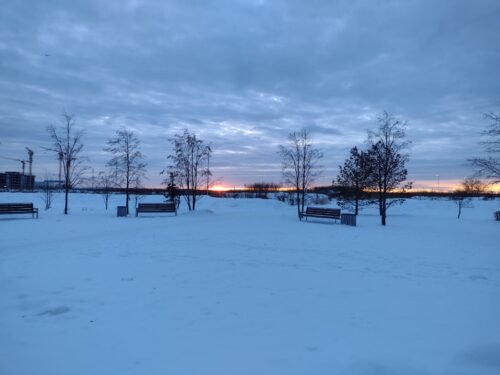
Not because they don’t care or feel guilt. Rather, it is a coping mechanism. Public discussion of the war is practically prohibited and the ‘spreading of false information’ carries lengthy prison sentences.
For visitors, most trips to the country remain trouble free and the locals are only too happy to greet foreign tourists. Your trip also doesn’t need to be seen as an endorsement of the war or the Russian government, much the same as visiting any other authoritarian country wouldn’t.
The German couple also had advice for those unsure about traveling: ‘travel is like having children. There’s never a good time and always an excuse not to. If you wait for the right time, you’ll never do something.’

- Latest Posts
- The Wild Mississippi: 2340 Miles Across Ten States - April 8, 2024
- Exploring the Floating Villages of Tonle’ Sap Lake - April 3, 2024
- Woman Traveling Solo on Turkish Buses - March 27, 2024

3 thoughts on “ Russia: Visiting in 2023 ”
Good Day, my wife is Russian and I plan to go visit her family with her. May I ask what passport you traveled with? I have a USA passport and am only reading info put out by the US govt. about possible aggression towards Americans. Can you provide any first hand insight? Many Thanks.
Hi Richard, we have the same questions with my partner, I’m Russian, he is American, in 2021 in August we traveled together to Russia without any issues at all. He still has his 3years visa and now we are planning to travel to Russia together as well. I’ll highly appreciate if you tell me how would be your trip.
nice..supporting the economy of the country which is killing innocent people. well done!
Leave a Reply Cancel reply
Your email address will not be published. Required fields are marked *
Insert/edit link
Enter the destination URL
Or link to existing content
We’re sorry, this site is currently experiencing technical difficulties. Please try again in a few moments. Exception: request blocked
The dos and don'ts of visiting Russia for the first time
Sep 24, 2021 • 6 min read
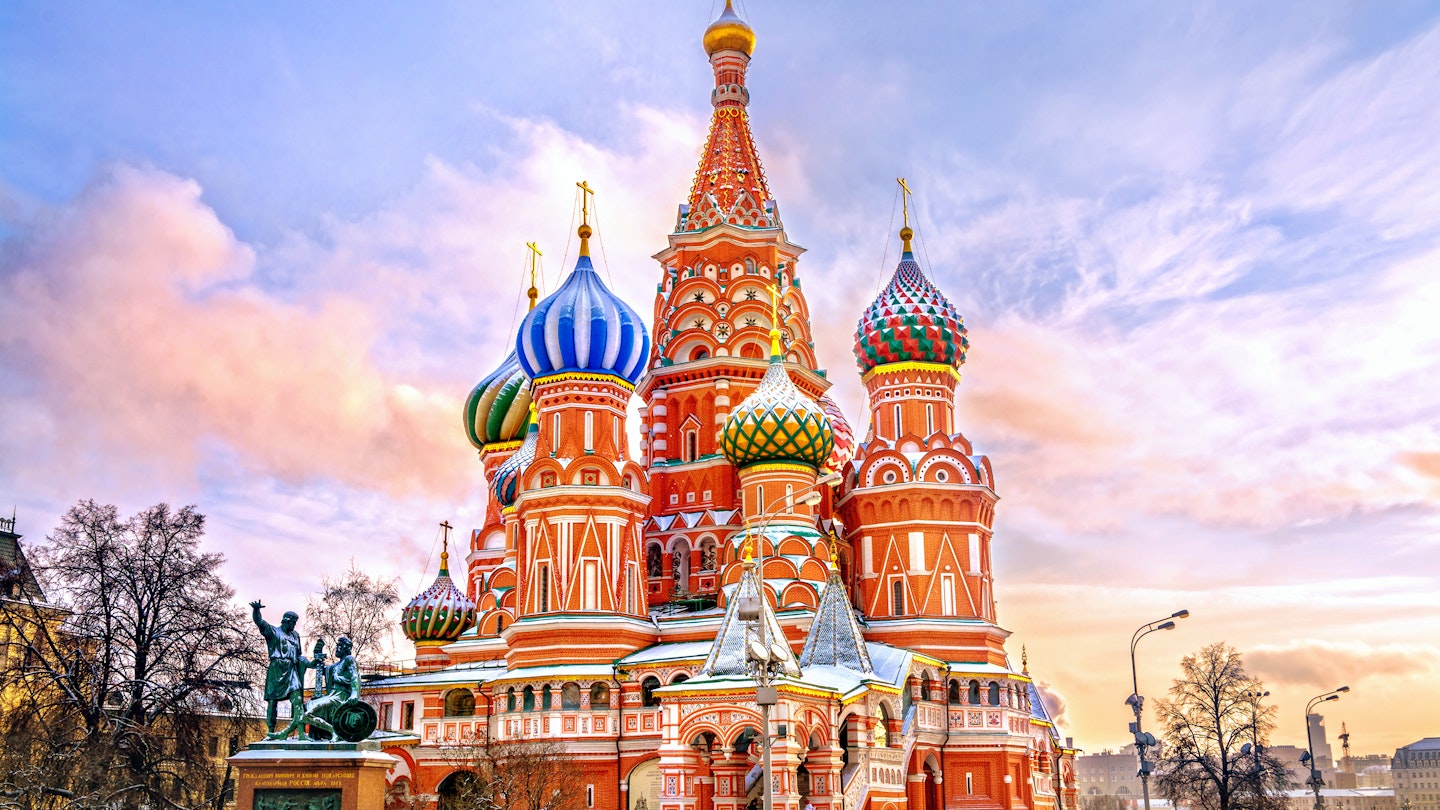
These top tips can help you make the most of your visit to Russia © MarinaDa / Shutterstock
The world’s largest country beguiles and fascinates with its world-class art, epic landscapes and multifaceted society. You may also find that perseverance and a sense of humour will go a long way in enriching your first-time Russian travel experience. From the things you absolutely must do before you travel to the things we recommend that you steer clear of once you're there, here are some top tips for avoiding common pitfalls when visiting Russia .
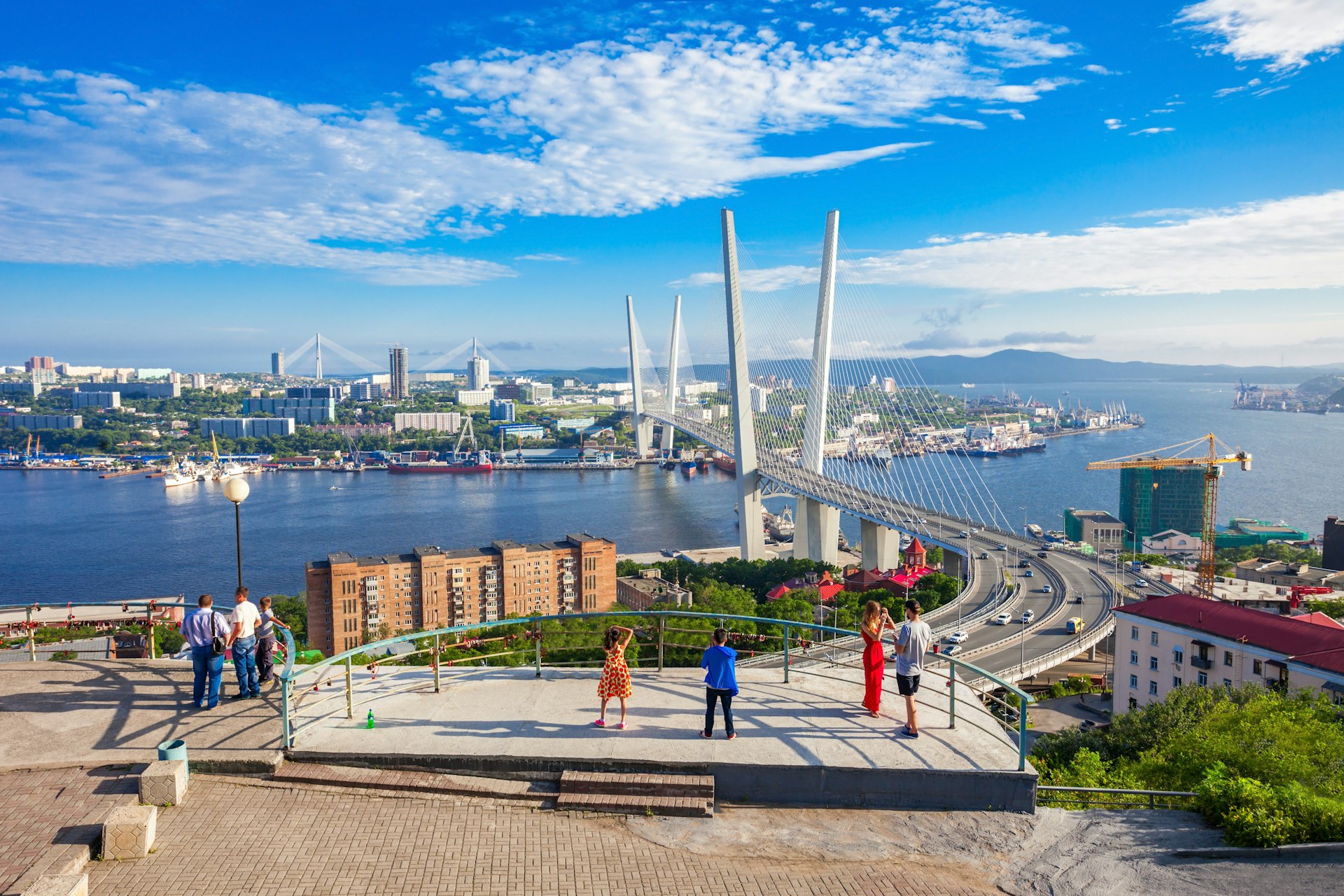
DO apply for a visa early and register on arrival
Visas must be applied for in advance by all visitors. How you do that varies depending on your nationality and where in Russia you are traveling to. Travelers from many countries, including the UK and US, need to apply in-person at an embassy or consulate and provide biometric data. An e-visa may be an option for passport-holders from 52 countries, which include many EU travelers, as well as those from China, India, Japan, Singapore, and some Middle Eastern countries. However these are temporarily suspended due to COVID-19. Check with your local Russian embassy or consulate for confirmation, or get up-to-date information here .
You can apply at the last moment, but it may cost you a fortune. Start the application process at least a month before your trip and consider using a specialist travel agency to arrange visas and make key transport bookings. Every visitor to Russia should have their visa registered within seven days of arrival, excluding weekends and public holidays. The obligation to register is with your hotel or hostel, or landlord, friend or family if you’re staying in a private residence. Also keep in mind that your visa entry and exit dates will be written according to European calendar convention (day/month/year) as opposed to the American style, so don't get mixed up or over-stay your visa.

DO check the events calendar
During major holidays – the first week in January (between New Year’s Day and Orthodox Christmas) and the first week or two of May (around Labour Day, or May Day, and Victory Day) – Moscow and St Petersburg empty out. Despite this, both cities are festive during these times, with parades, concerts and other events, but museums and other institutions may have shortened hours or be shut altogether. May to September is the best time to visit St Petersburg but mid-June is when the city is irresistible, with the White Nights revelry at its peak.

DO dress up for a night out
We can’t guarantee you’ll make it past Moscow’s "face control" (the term comes from clubs trying to "save face" by only letting in patrons who meet their image standards) but you can better your chances of getting in to the top clubs by making a sartorial effort – high heels and skirts for women, all black for men. Russians also make an effort when they go to the theater or a posh restaurant – you should do likewise to fit in.

DO learn the Cyrillic alphabet
Making an effort to familiarize yourself with the Cyrillic alphabet repays tenfold. It will help you decode street and metro signs, maps, timetables and menus, even if you don't know many Russian phrases. While digital tools like the Russian Metro app and Google Translate make it easier than ever to visit countries where you don't speak or read the language, brushing up beforehand can reduce frustration and endear you to the locals.
Rideshare options such as Taxovichkoff and Yandex Taxi upended the taxi industry in Russia as much as anywhere else. That means less pressure to know the Russian phrases you'd need to hails cabs in the streets, but it still is wise to learn key phrases in case there's a navigation mixup, like the address of your hotel or intersection of your short-term apartment rental.

DO expect to spend your money
Moscow is one of the most expensive cities in the world and St Petersburg is not a cheap destination either; wallet-thinning shock is common at many restaurants and hotels. As a foreigner you’ll also find yourself paying more than a Russian for some museums – often as much as 10 times the price Russians pay. If you’re a student, flashing your ID can save you money at museums and other institutions.
You can save on dining out a few different ways. Many restaurants offer "business lunches" that are great value and very filling. Several years ago the trend for " anti-cafes " cropped up in larger Russian cities, and there are still a few where you pay by the minute for coffee, biscuits, and a little wi-fi time.
Food markets that blend farmers markets and food halls are popular, and are often found in architecturally significant vintage buildings. You can shop for ingredients to cook yourself or sample cuisines from around the world from dozens of vendor stalls. Many food markets are less expensive than sit-down restaurants and let you try a wider variety of local and international dishes.

DON’T ask for a mixer with your vodka
Few traditions in Russia are as sacrosanct as the drinking of vodka , and any foreign notions of drinking it with orange juice or tonic are anathema to your average Russian. If you need something to wash it down, you can chase it with a lemon, a pickle or, perhaps, a separate glass of water. Vodka is drunk in swift shots, not sipped. It’s traditional (and good sense) to eat a little something after each shot, so order some vodka snacks too.

DON’T be disrespectful in a church
Working churches are open to everyone, but as a visitor you should take care not to disturb any devotions or offend sensibilities. There's no face control, but women should cover their heads and bare shoulders when entering a church. In some monasteries and churches it’s also required for a woman to wear a skirt – wraps are usually available at the door. Men should remove their hats in church and not wear shorts.
DON’T take photos of government buildings
Be very careful about photographing stations, official-looking buildings and any type of military-security structure – if in doubt, don’t snap! Travelers have been arrested and fined for such innocent behaviour.
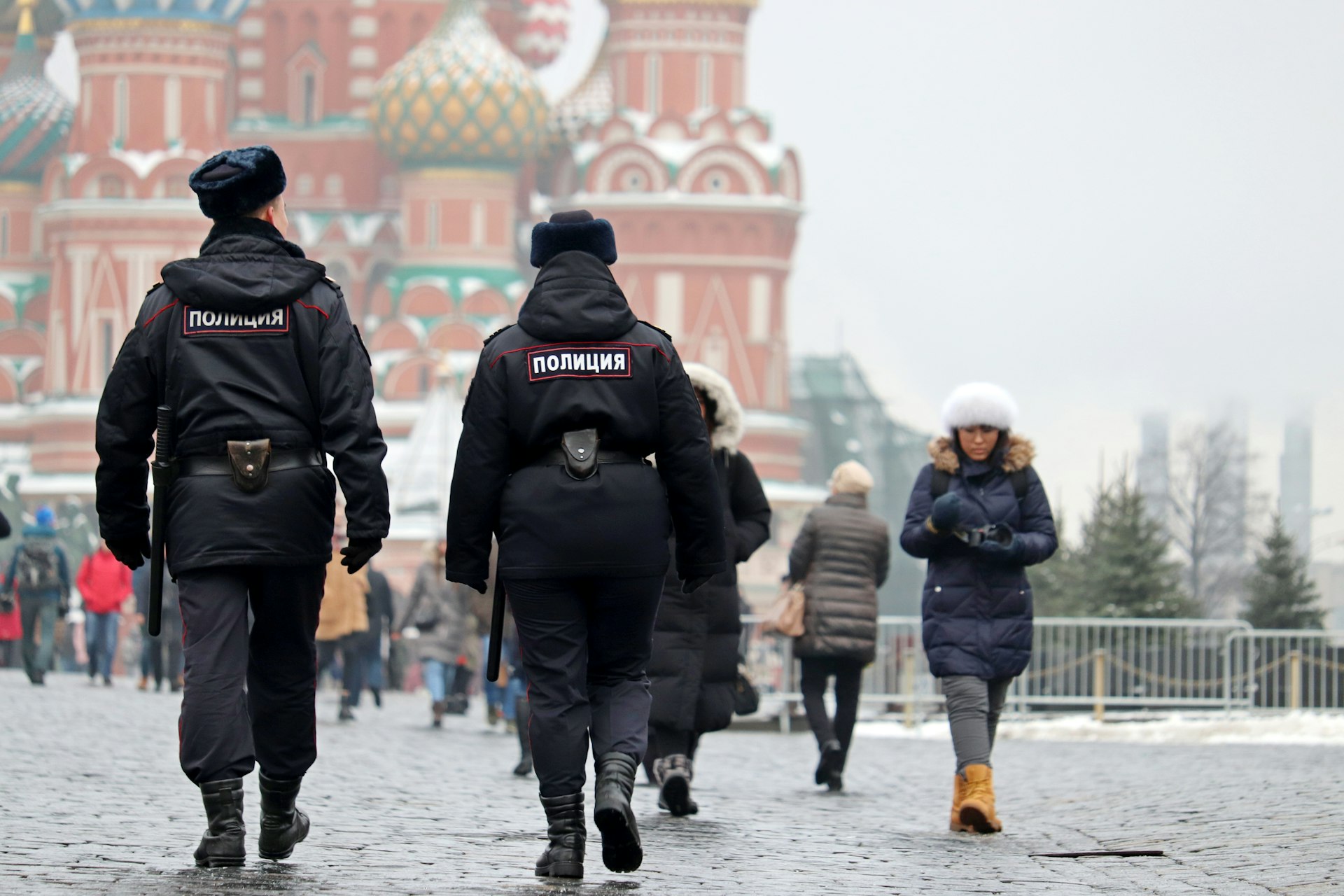
DON’T be surprised if you’re stopped by the police
Although new laws were passed in 2011 that ostensibly reconfigured Russia's police and their interactions with the public, it's still wise to carry a photocopy of your passport, visa and registration – not to mention travel documents that indicate how and when you'll return home – and present them when an officer demands to see your documents. You may also see special tourist police near major attractions like the Red Square , who have special training and language skills to assist travelers.
If you're issued a fine, Russian authorities might expect an "unofficial payment" to expedite their service on the spot, as opposed to handling the matter later at the station. Either way, always ask for an official receipt, and consider carrying the phone number for your country's embassy in case matters get more complicated.
You might also like: How to spend a perfect weekend in Moscow How to plan and pack for the Trans-Siberian Railway Beyond the Trans-Siberian: travelling Russia's unexplored northwest by train
This article was originally published in August 2009.
This article was first published October 2019 and updated September 2021
Explore related stories
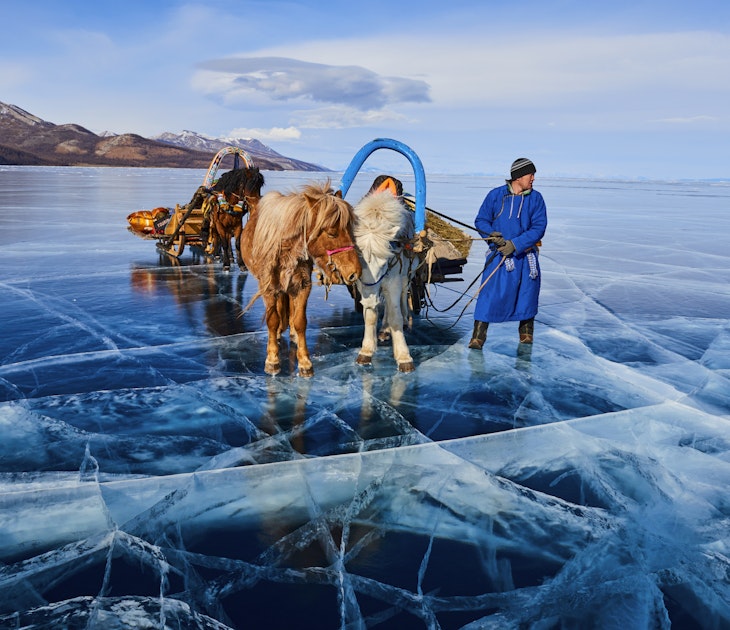
Tips & Advice
Aug 30, 2023 • 9 min read
The staggering expanse of Mongolia can make it difficult to decide where to go first. Start your bucket list with these 12 unmissable places to visit.

Aug 3, 2023 • 7 min read

Jul 18, 2023 • 5 min read

Jul 3, 2023 • 3 min read

Jul 3, 2023 • 8 min read

Mar 30, 2022 • 4 min read
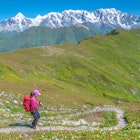
Feb 17, 2022 • 9 min read

Dec 29, 2021 • 7 min read

Oct 24, 2021 • 4 min read

Sep 20, 2021 • 5 min read
Situation in Haiti April 5, 2024
U.s. citizens in haiti, update april 12, 2024, information for u.s. citizens in the middle east.
- Travel Advisories |
- Contact Us |
- MyTravelGov |
Find U.S. Embassies & Consulates
Travel.state.gov, congressional liaison, special issuance agency, u.s. passports, international travel, intercountry adoption, international parental child abduction, records and authentications, popular links, travel advisories, mytravelgov, stay connected, legal resources, legal information, info for u.s. law enforcement, replace or certify documents, before you go.
Learn About Your Destination
While Abroad
Emergencies
Share this page:
Crisis and Disaster Abroad: Be Ready
What the Department of State Can and Can't Do in a Crisis
Information for U.S. Citizens about a U.S. Government-Assisted Evacuation
Traveler's Checklist
Safety and Security Messaging
Best Practices for Traveler Safety
Staying Connected
Smart Traveler Enrollment Program (STEP)
Traveler Information
LGBTQI+ Travelers
Adventure Travel
High-Risk Area Travelers
Travelers with Dual Nationality
Journalist Travelers
Faith-Based Travelers
Pilgrimage Travelers (Hajj and Umrah)
U.S. Students Abroad
Cruise Ship Passengers
Women Travelers
Travelers with Disabilities
Older Travelers
U.S. Volunteers Abroad
Travelers with Pets
Travelers With Firearms
Travel Agents
Travel Safety - Race and Ethnicity
U.S. Travelers in Europe's Schengen Area
Your Health Abroad
Insurance Coverage Overseas
Driving and Road Safety Abroad
Customs and Import Restrictions
Information for U.S. Citizens in Russia – Travel Options Out of Russia
Lodging Safety
Information for U.S. Citizens in Russia – Travel Options Out of Russia
U.S. citizens should leave Russia via commercial options still available. The situation on Russian borders is always changing. We update this page once a month.
Air travel options for U.S. citizens:
- Be aware the U.S. Federal Aviation Administration (FAA) downgraded the air safety rating for Russia, as a result of Russia’s Federal Agency for Air Transport failing to meet International Civil Aviation Organization (ICAO) safety standards. For more information on this matter, click here .
- Explore commercial air routing through non-European destinations.
- Ask family and friends outside of Russia to help buy airline tickets. This is especially helpful if credit/debit cards are not working, as described below.
- Consider contacting a global travel company to buy airline tickets.
Travelers may also depart via some of Russia’s land borders. More information is below.
Use of Credit/Debit Cards & Access to Foreign Currency: International sanctions have been imposed on Russian banks due to Russia’s military actions in Ukraine. As a result, U.S.-issued credit and debit cards will not work in Russia. Travelers may consider using local credit cards, cash, or other forms of payment. Travelers can also ask family and friends outside of Russia to buy their ticket. U.S. citizens should take this into account when making plans.
Be aware the exclusion of Russia from the SWIFT system has made money transfers to/from the United States impossible. The Bank of Russia announced that non-residents from “both friendly and unfriendly countries” may transfer funds abroad in the amount of their wages although there remains a ban on transferring funds abroad for non-residents from “unfriendly countries” that do not work in Russia, as well as legal entities from such states. This ban may be extended beyond its current end date of March 31, 2024. In addition, non-residents may have difficulty withdrawing foreign currency, including USD, from accounts held in Russian banks.
We encourage you to enroll in our Smart Traveler Enrollment Program (STEP) . STEP enrollment gives you the latest security updates and it makes it easier for the U.S. Embassy to contact you in an emergency. U.S. Citizens in Russia can email [email protected] for assistance.
Click here for more updates from the U.S. Embassy in Russia.
Latest Travel Advisory and Alerts
Security Alert
Departing Russia by Air: If you want to leave Russia by air, be prepared to comply with your destination's entry requirements. Direct flights are now operating from Moscow and other major Russian cities to Turkey, the United Arab Emirates, Qatar, Thailand, India, and other destinations.
Departing Russia by Land: If you want to leave Russia by land, be prepared to comply with your destination’s entry requirements, which may differ from the entry requirements for travelers arriving by plane . Travelers should also be aware that not all border crossings may be open. Travelers should check the website of the U.S. Embassy in the country you wish to visit for more information. For a list of embassies, click here .
Departing Russia by Sea: While ferry availability changes often, some ferries from Russia to other countries may be running, including from Sochi to Trabzon, Turkey.
Visa Requirements for Families with U.S. and Russian Citizen Family Members
The following information may be of use to families with both U.S. and Russian citizen family members that are considering departure options:
No Visa Required for Russian Citizens
Azerbaijan: Russians do not need a visa to enter Azerbaijan and can stay for up to 90 days.
Bahrain: Russians can get visas on arrival.
Georgia: Russian citizens do not need a visa to enter Georgia.
Kazakhstan: Russian citizens can enter Kazakhstan without a visa by air for up to 90 days but not more than 90 days within a 180-day period.
Mongolia: Mongolia does not require a visa for temporary (30-day) stays of Russian nationals. It only requires a passport with at least six-months validity.
Qatar: Russian citizens can enter Qatar visa free for an initial 30-day stay. They have the possibility to extend 30 additional days.
Serbia: Russians do not need visas to enter Serbia and can stay for up to 30 days.
UAE: UAE offers visas on arrival for Russian tourists with authorization for a 30-day stay. Russian tourists can extend these visas to 90 days.
Visa Required for Russian Citizens
Estonia: The Estonian government does not allow Russian citizens with short-term Schengen visas to enter Estonia for tourism, sports, or culture. The entry restrictions do not apply to Russian citizens who are long-term residents of Estonia or to individuals traveling to Estonia to visit family. The rules also exempt workers involved in transporting goods and passengers, and also include individuals in certain humanitarian circumstances. The Estonian Police and Border Guard website has more information.
Finland: Russian citizens need a visa to enter Finland. Finland has greatly reduced the acceptance of tourist visas for Russians. Priority is given to those applying for a visa due to family reasons, work, or study. In extreme cases, the Finnish Border Patrol will consider parole entry if the person is transiting Finland or has other extraordinary circumstances.
Latvia: Visas are required for Russians to enter Latvia. They are currently not being issued except for some specific funerals. For more information, please contact the Latvian Ministry of Foreign Affairs.
Lithuania: Russian citizens need a visa to enter Lithuania. Lithuania is no longer issuing visas to Russian citizens. Lithuania does not allow Russian citizens with short-term Schengen visas to enter Lithuania for tourism, sports, or culture. Exceptions apply for family members of EU nationals, seafarers, people transiting to Kaliningrad, and in other humanitarian situations.
SPECIFIC INFORMATION ON ENTERING NEIGHBORING COUNTRIES FROM RUSSIA:
Azerbaijan To reach the U.S. Embassy in Baku, call +994 12 488-3300, or email the American Citizens Services unit at [email protected]
Click here to see all Messages and Alerts for U.S. Visitors to Azerbaijan.
- Azerbaijan's land borders with its neighboring countries remain closed, except for freight transportation. Entry into Azerbaijan is possible only by air.
- Azerbaijan’s national air carrier, AZAL (Azerbaijan Airlines), operates regular flights from Moscow's Domodedovo and Vnukovo airports, St. Petersburg, Astrakhan, Kazan, Mineralniye Vody, Makhachkala, Novosibirsk, Samara, Sochi, Ufa, Volgograd, and Yekaterinburg.
Belarus Do not travel to Belarus due to the arbitrary enforcement of laws, the risk of detention, the Russian military attack on neighboring Ukraine, and the buildup of Russian military in Belarus along the border with Ukraine. U.S. citizens in Belarus should depart immediately via commercial or private means. Read the travel advisory for Belarus here .
Estonia To reach the U.S. Embassy in Estonia, call 372-668-8100, or email [email protected] .
Click here to read all Messages and Alerts for U.S. Visitors to Estonia.
- Estonia does not allow air traffic from Russia due to EU sanctions. U.S. citizens may cross into Estonia but family members of other nationalities may need Estonian visas to enter.
- Estonia no longer allows vehicles with Russian Federation license plates to enter Estonia. Drivers and passengers of Russian-plated vehicles may cross the border on foot and must leave the vehicle behind in Russia. The ban does not apply to international passenger transport buses.
- Lux Express continues to offer bus service between St. Petersburg and Tallinn. If you travel by bus from Russia to Estonia, expect longer than normal wait times to cross the border.
- Dual U.S.-Russian citizens have reported difficulties entering Estonia. U.S. citizens with other nationalities should be ready to prove their citizenship and show travel details to Estonian border guards.
- There are currently no ferries operating from Russia to Estonia.
- As of February 1, 2024 the Russian Federation closed the Narva-Ivangorod border crossing for construction. It is closed to all motor vehicle traffic in both directions. Russian authorities say the border may be closed for approximately two and a half years. It is still possible to cross the Narva-Ivangorod border on foot but crossing by taxi is not possible. Buses still travel between Russia and Estonia, as noted above, but passengers may have to cross the border on foot and transfer to a different bus.
- Vehicles can still cross the Estonian-Russian border at the Koidula-Kunitsina Gora and Luhamaa-Shumilkina border crossings, with limitations imposed on Russian Federation license plates as noted above.
Finland To reach the U.S. Embassy in Finland, call +358-9-616-250, or email [email protected]
Click here to read all Messages and Alerts for U.S. Visitors to Finland.
- All land border crossing points between Finland and Russia are closed. Check the Finnish Border Guards website for updated information regarding Finland’s borders and entry requirements, check the Finnish Border Guards website.
- Finland’s national railway operator has suspended service between
- No air travel between Finland and Russia is possible.
- There are currently no ferries operating from Russia to Finland.
- When the border is open, travelers may not cross the land border on foot.
U.S. citizens with expired passports may transit Finland to the United States, but they must contact the U.S. Embassy in Helsinki at [email protected] in advance and provide the traveler’s name, arrival time, vehicle information, and U.S. airline ticket information.
Passengers transiting Finland may not cross the border outside regular opening hours except to make connecting flights/ferries.
You can find requirements for entry from the Finnish Border Guards website .
Georgia To reach the U.S. Embassy in Georgia, call +(995 32) 227-70-00, or email the American Citizens Services unit at [email protected] .
For information on the Georgian border, please visit the Georgian State Commission on Migration Issues .
Kazakhstan To reach the U.S. Embassy in Kazakhstan, call +7 (7172) 70-21-00, or email the American Citizens Services unit at [email protected] .
Click here to see all Messages and Alerts for U.S. Visitors to Kazakhstan.
- While Air Astana and FlyArystan have suspended flights between Russia and Kazakhstan, other airlines may continue to fly between the two countries. U.S. government personnel are prohibited from using Kazakhstani airlines for official travel without prior approval, except for Air Astana and FlyArystan, due to safety concerns. For more information about travel, see Kazakhstan’s Country Information Page .
- U.S. Citizens with expired passports will not be admitted to Kazakhstan, including for transit.
Latvia To reach the U.S. Embassy in Latvia, call +371 6710 7000, or email [email protected] .
Click here to read all Messages and Alerts for U.S. Visitors to Latvia.
- The Russia-Latvia border remains open, but border crossing points may be limited. Travelers to Latvia should check with Latvian Border Police before starting travel. U.S. citizens may cross into Latvia with U.S. passports that have a validity of at least six months.
- Latvia no longer allows entry for Russian-registered and plated private vehicles. This includes those owned or driven by U.S. citizens. We recommend traveling via plane or bus.
- There is direct bus service from Moscow and St. Petersburg to Riga via the Ecolines buses, which depart daily.
- There is no train or ferry service which travels directly from Russia or Belarus to Latvia.
- Latvia is not issuing visas to Russian citizens to enter the country at this time, including for accompanying Russian family members of U.S. citizen minors.
- Latvia currently allows U.S. citizens to cross into Latvia from Belarus through only one land border crossing. Please check hours and locations as they may change without notice.
- There are extended waits to cross the land border from Russia to Latvia. The wait time can be as long as 72-96 hours, with limited or no access to food, water, or sanitary facilities.
Lithuania To reach the U.S. Embassy in Lithuania, call +370 5 266 5600, or email [email protected]
Click here to read all Messages and Alerts for U.S. Visitors to Lithuania.
- Russian citizens need a visa to enter Lithuania. Lithuania is no longer issuing visas to Russian citizens. Lithuania does not allow Russian citizens with short-term Schengen visas to enter Lithuania for tourism, sports, or culture. Exceptions apply for family members of EU nationals, seafarers, people transiting Kaliningrad, and in other humanitarian situations.
Mongolia To reach the U.S. Embassy in Ulaanbaatar, call +976-7007-6001, or email the American Citizens Services unit at [email protected] .
Click here to see all Messages and Alerts for U.S. Visitors to Mongolia.
- There are no reports of any border/Point of Entry closures.
- The Mongolian government requires those entering to be in possession of a passport with at least six month validity.
- U.S. and Russian nationals can travel and enter Mongolia visa-free, but may be required to register after arrival depending on the length of stay.
- There are flights each month operating on Aero Mongolia from Ulan Ude to Ulaanbaatar and from Irkutsk to Ulaanbaatar. These tickets can only be purchased inside Russia.
- See Mongolia’s Country Information Page for more information about travel to Mongolia, and entry and exit requirements for U.S. citizens.
Poland To reach the U.S. Embassy in Warsaw, call +48 22 504-2000, or email the [email protected] .
Click here to read all Messages and Alerts for U.S. Visitors to Poland.
- U.S. citizens are restricted from entering Poland from Belarus and Russia unless they meet one of the exceptions currently in place. You may find the list of exceptions on the Polish Border Guard website .
- U.S. citizens who do not meet one of the listed exceptions, but who want to return/evacuate from Belarus to the United States in transit through Poland, or who need to enter Poland for humanitarian reasons, may apply for a special permit to enter Poland only at the border crossing point in Brest-Terespol.
The information above is provided for general information only and may not be applicable in a particular case. You should ask private legal counsel about interpreting specific U.S. or foreign laws.
This site is managed by the U.S. Department of State. External links to other Internet sites and listings of private entities on this page are provided as a convenience and should not be constructed as the U.S. Department of State government endorsement of the entity, its views, the products or services it provides, or the accuracy of information contained therein. The order in which links appear has no significance, and the listings or links may be removed at any time at the discretion of the Department.
Enroll in STEP

Subscribe to get up-to-date safety and security information and help us reach you in an emergency abroad.
Recommended Web Browsers: Microsoft Edge or Google Chrome.
Learn about your destination
Check passport expiration dates carefully for all travelers! Children’s passports are issued for 5 years, adult passports for 10 years.
External Link
You are about to leave travel.state.gov for an external website that is not maintained by the U.S. Department of State.
Links to external websites are provided as a convenience and should not be construed as an endorsement by the U.S. Department of State of the views or products contained therein. If you wish to remain on travel.state.gov, click the "cancel" message.
You are about to visit:
The Top 15 Places to Visit in Russia
Home to eleven time zones and a border spanning two continents, Russia, the world's largest country, is truly a world of its own. As a country that has seen the rise and fall of great empires and unions, its history only adds to its distinct identity. With vast and immensely beautiful landscapes in Siberia and the Kamchatka Peninsula, culturally rich heritage sites in the North Caucasus, and pulsating cities such as Moscow, Russia makes for a destination worth a visit for travelers of all kinds.
St. Petersburg
St. Petersburg is known as Russia’s cultural capital, and rightly so. Home to more than 200 museums, such as the spectacular Hermitage, the city’s links to heritage from the past can also be seen in several buildings such as the opulent Catherine Palace and the magnificent Church of Saviour on Spilled Blood. St. Petersburg additionally can be a delightful destination for book lovers, with spots to explore Russian authors such as Fyodor Dostoevsky’s legacy. Further, book lovers can visit old bookstores and several libraries in the city, such as the National Library of Russia, are open to the public through pre-arranged tours. A final reason why St. Petersburg is a top destination in Russia is the exciting nightlife of the city, which one can start exploring in and around the Nevsky Prospekt.
The capital city of Moscow is definitely among the top places to visit in Russia, for its variety of experiences on offer: art museums such as the Tretyakov Gallery, high-end restaurants such as the White Rabbit to the impressive ballet culture, most prominently in the Bolshoi Theatre.
While the Red Square is a vital part of the city to see the essentials such as The Kremlin and Lenin’s mausoleum, other places in the city, such as the Izmailovo flea market, are also worth a visit.
Arctic Circle (Murmansk)
The vast Russian territories on the Arctic Circle hangs as the crown of country, marked by Tundra and snow. As the northern edge of the world, this region attracts those looking to go stargazing and, if lucky, to catch the Northern Lights. Head to the largest city in the Arctic circle, Murmansk, from where you can head to villages such as Teriberka close by for views of the vast sky and a boat graveyard, beaches at the northern edge of the world, making for a thoroughly surreal experience.
Murmansk is also home to the Lenin Nuclear Icebreaker, the world’s first nuclear-powered ship turned museum. A visit to a husky farm near the city where one gets to interact with the royal, adorable Huskies in their natural habitat is also recommended.
Capital of Tatarstan region, Kazan is one of the most aesthetically delightful cities in Russia that is home to the Islamic heritage of this part of the country while also incorporating Orthodox Christianity. The highlight of Kazan is thus its heritage architecture, which displays both colorful orthodox Christian churches as well as stunning mosques such as the Khul Sharif mosque.
Other must-see buildings include the Suyumike tower and the Temple of All Religions, an eclectically styled prayer complex where several faiths can go to pray.
Kamchatka Peninsula
A peninsula full of vast volcanoes, stunning natural formations such as Valley of Geysers and a habitat of bears, a visit to Kamchatka is a real immersion into Russia’s natural beauty. There are several trekking and camping tours available inside the numerous bio-reserves located in the valley, making it ideal for those who want to disconnect with the outside world and dive deep into nature.
The city of Petropavlovsk-Kamchatsky can be made a base to further explore the region, where once can sample some of the seafood delicacies such as Kamchatka crabs.
A resort town by the black sea, Sochi is surrounded by stunning snowcapped mountains, which form a backdrop to beaches. Among the most popular summer destinations within Russia, this city, however, this city also makes for an excellent place to try out winter sports activities such as skiing.
Besides lounging around the beaches, the city is a good place to try out adventure sports such as bungee jumping, and one can also head to the SkyPark Sochi for rollercoasters and other adventure activities with stunning views.
Republic of Dagestan
A somewhat offbeat destination in Russia for tourists, the culturally unique and naturally stunning region of Dagestan, which translates to The Land of The Mountains, can be a top choice for those looking to explore the diversity of the world’s largest country. While Dagestan is perceived by many as a dangerous place to visit owing to political movements in the area, visitors to the region attest to the fact that prior planning and taking general safety measures can make for a rewarding experience.
The city of Derbent, with the Caspian Sea on the coast, owing to its old-world charm and stunning mosques, is one prominent place to visit and to explore the heritage and culture of the region.
Lake Baikal
Lake Baikal, the largest freshwater lake in the world, is a vast region full of villages around the lake that make for excellent summer holidays and comes highly recommended for visitors looking to unwind and relax. The famous trans-Siberian railway route passes through this vast water body, which can be navigated after making a base in the city of Irkutsk.
While there are several villages and spots such as Olkhon Island where you can rent a Dacha and proceed to kayak, boat, or simply lounge around the lake, a recommended place to visit is the Peschanaya Bay, which is a stunning beach-like landscape with slanted rocks to form a backdrop.
Nizhny Novgorod
Marked with history and home to several heritage monuments, Nizhny Novgorod is a top choice for Russian history lovers. Once known as ‘Gorky,’ this city was also considered an important center for the production of military equipment, but these days, the highlight of the city is its architecture.
Places to explore include the city’s Kremlin, with its 13 towers, and the historic Rozhdestvenskaya Street. Other activities to indulge in include watching the sunset over the confluence of the Oka and Volga Rivers, which can be viewed set against the city’s Kremlin.
Vladimir and Suzdal
The two cities of Vladimir and Suzdal, located very close to each other, are part of a cluster among the "Golden Ring" cities around Moscow. While Vladimir was once the capital of the Russian empire, the adjacent Suzdal extends the sense of history and heritage through the numerous churches to be found here. Wooden houses with ornate window panels, large church and monastery complexes, and charming markets delight visitors.
Lena Pillars
Spectacular, awe-inspiring rocks that go up to impressive heights and nicknamed Mountains of Rising Gods among locals form the Lena Pillars Natural Park. A one-of-a-kind landscape that's worth a visit in Russia's Yakutia, Lena Pillars can be accessed from Yakutsk. River cruises around the park offer a spectacular view, but one can also opt for a helicopter or air tour of the area.
A winter wonderland located on the banks of the Kama River, Perm can be a surprising delight for those looking to visit ice caves such as Kungar Ice Caves in the nearby region. In itself, the city also has an impressive ballet scene as well as other cultural activities. Visitors can also take a day trip to the Memorial Complex of Political Repressions, Kuchino, Permsky Krai, also known as the Perm 36 Gulag Museum, which was once a forced labor camp.
Vladivostok
A stunning city in the Far East of Russia, Vladivostok is a port city located close to both China and North Korea. The beauty of this city, marked by mountains and bays, is most prominent in its Golden Horn Bay. Meanwhile, the city's Eagle's Nest Hill is one of the best places to get views of the cityscape.
As a big city, Vladivostok has several notable museums, with the S-56 Submarine Museum, a World War II museum located inside a submarine, being a unique choice for visitors.
Kizhi Island, Karelia
Russia’s wooden architecture is among the many things unique to the county, and the Kizhi Island, located in the Karelia region, is an open-air museum of these detailed and classic structures. Kizhi Island is increasingly becoming a popular site for visitors, with ancient structures such as the Church of Transfiguration as well as an arranged display of rural life. The island, which houses the oldest wooden church in Russia, can be visited from Petrozavodsk and can only be visited for a day trip.
Yekaterinburg
A large industrial city in the Ural Mountains, Yekaterinburg is among Russia’s crucial spots with a significant history in the Russian Revolution: it is where Russia’s last Tsar and his family were executed. Exciting for history and culture enthusiasts, this city is home to a thriving theater and dance scene. Further, Yekaterinburg also houses over 30 interesting museums.
Those in the city can also plan day trips to fascinating spots close to the town, such as the quirky Kirillov’s House in the Kunara village or opt for a nature trip to the mountains.
Moscow - Russian Rivers and Waterways Port of Call
The Top 12 Things to Do in Nizhny Novgorod, Russia
Travel to Murmansk, the Largest City North of the Arctic Circle
The Top 18 Things to Do in Vladivostok, Russia
10 Must-Visit Palaces and Castles in Russia
The Top 12 Things to Do in Astrakhan
Top 12 Things to Do in Kazan, Russia
The Top 12 Things to Do in Omsk
9 Things to See in Moscow's Red Square
The World's Most Gay-Friendly Beach Cities and Resorts
The Best Countries in the World for Adventurous Travelers
12 Best Free Things to Do in St. Petersburg, Russia
25 Best Things to Do in Moscow
Moscow Metro: The Complete Guide
25 Best Things to Do in Alaska
Top Mexico Destinations
- Skip to main content
- Skip to "About this site"
Language selection
Search travel.gc.ca.
Help us to improve our website. Take our survey !
COVID-19: travel health notice for all travellers
Russia travel advice
Latest updates: The Need help? section was updated.
Last updated: April 3, 2024 08:33 ET
On this page
Safety and security, entry and exit requirements, laws and culture, natural disasters and climate, russia - avoid all travel.
The armed conflict in Ukraine has led to armed incursions and shelling in areas close to the Russian-Ukrainian border. Drone strikes, explosions, and fires have occurred further into Russia’s interior. The impacts of the armed conflict with Ukraine could also include:
- partial military mobilization
- restrictions on financial transactions
- increasingly limited flight options
If you are in Russia, you should leave while commercial means are still available. If you remain in Russia, maintain a low profile. Canadians holding Russian citizenship may be subject to call-up for mandatory military service.
Back to top
Terrorist attack in Krasnogorsk, Moscow Oblast
On March 22, 2024, a terrorist attack occurred at the Crocus City Hall, a concert venue in Krasnogorsk, just outside central Moscow. There are reports of gunfire and explosions. The incident resulted in multiple casualties and fires continue to burn around the site of the attack.
Local authorities have cordoned off the affected area and have cancelled upcoming mass gatherings in Moscow. Further attacks could occur at any time.
If you are in Moscow Oblast:
- avoid the affected area
- follow the instructions of local authorities
- exercise extreme caution in public and avoid large gatherings
- contact the Embassy of Canada to Russia, in Moscow, if you require consular emergency assistance
Armed conflict with Ukraine
On June 24, 2023, there were reports of military tensions in the Rostov region.
Flight availability, already reduced following Russia’s full-scale invasion of Ukraine, continues to be subject to unpredictable and significant limitations. If you are in Russia, you should leave while commercial means are still available.
Some financial transactions, including those with Canadian major credit and ATM cards, are not possible. As a result, you may not be able to use your credit card for purchases within Russia or to withdraw cash at an ATM. Availability of essential services may also be affected.
Communications related to the current situation are scrutinized by local authorities. You may face heavy consequences if you discuss, share or publish information related to the Russian invasion of Ukraine. Foreign journalists and other media workers in Russia may also face considerable risks.
Security conditions are unpredictable and could deteriorate without notice. The ability of our Embassy to provide consular services in Russia may become severely limited.
There have been armed incursions and shelling in areas close to the Russian-Ukrainian border, notably in Bryansk and Belgorod Oblasts. Drone strikes, explosions and fires have also occurred at key infrastructure sites and military installations further into Russia's interior and in cities, including in Moscow and St. Petersburg.
You may encounter an increased security presence with potential disruptions to transport and movement, especially in areas near Russian military installations.
Avoid all travel to Russia. If you decide to remain despite this advisory, be aware that:
- you may have to stay in Russia longer than expected
- you may be affected by shortages of essential products and services
- you may not be able to use your banking cards for payment or to withdraw funds
- you should not depend on the Government of Canada to help you leave the country
Additionally, while you remain in Russia, you should:
- review your personal security plans on a daily basis
- keep a low profile
- refrain from discussing political developments in public or online
- avoid areas where demonstrations and large gatherings are taking place
- make sure you have an adequate supply of cash, essential items and medications
- avoid any area where there are military installations or activity
- monitor trustworthy news sources to stay informed on the evolving situation
- make sure your travel documents are up-to-date, including those of your family
- contact your air company to check on flight availability
- communicate your travel plans to family and friends
- register and update your contact information through the Registration of Canadians Abroad service and encourage other Canadian citizens in Russia to do so
Rostov Oblast
The Russian government has declared a state of emergency and maintains a significant military presence in Rostov Oblast. The situation along the Ukrainian border is unpredictable and could change quickly. Exercise extreme vigilance if you must travel to this region, as armed clashes and violence pose serious threats to your safety. If you are currently in this area, you should strongly consider leaving. The ability of the Embassy of Canada to Russia in Moscow to provide consular assistance in this district is extremely limited.
Republics of Chechnya, Dagestan and Ingushetia, and Stavropol Krai
Terrorist attacks are frequent in the Chechnya, Dagestan and Ingushetia republics and Stavropol region. The security situation is unstable and dangerous. Suicide bombings occur on a regular basis and targeted assassinations have also taken place. Unexploded mines and munitions are widespread. Kidnapping for ransom is also common.
You must obtain special permission from the Ministry of the Interior to enter certain areas and regions.
Republics of Kabardino-Balkaria (including the Mount Elbrus region), Karachai-Cherkessia and North Ossetia
Tensions are high in Russia’s border regions with Georgia and may affect the security situation in Kabardino-Balkaria, Karachai-Cherkessia and North Ossetia republics. Military operations are carried out with little or no notice, and are accompanied by travel restrictions. The border crossings to Azerbaijan and Georgia are subject to frequent, sometimes lengthy closures.
There is a threat of terrorism. Terrorist groups have called for attacks on Russian soil. Incidents resulting in death and injury have occurred most frequently in the North Caucasus region, Moscow and St. Petersburg, but may happen throughout the country. Terrorist attacks could occur at any time.
Targets could include:
- government buildings, including schools
- cultural venues, including concert halls, nightclubs, and event centres
- places of worship
- Russian airlines, airports and other transportation hubs and networks
- public areas such as tourist attractions, restaurants, bars, coffee shops, shopping centres, markets, hotels and other sites frequented by foreigners
Always be aware of your surroundings when in public places.
Russian authorities have increased general security measures in Moscow and other large cities.
Violent crime
Crime against foreigners is a serious problem. Harassment and assaults are prevalent, particularly against foreigners of Asian and African descent. Some victims have died as a result of assaults. Foreigners in the areas to which we advise against all travel are particularly vulnerable. Several journalists and foreign aid personnel working in Russia have been killed or kidnapped. Criminals have targeted and destroyed well-marked aid convoys. Exercise extreme caution in crowds and open markets.
Petty crime
Petty crime, such as pickpocketing and purse snatching, occurs frequently and is often committed by groups of children and teenagers. Criminals use various techniques to distract the victims, including requests for help. In such situations, walk away quickly. Preferred areas for criminals include:
- underground walkways
- public transportation and transportation hubs
- tourist sites
- restaurants and markets
- hotel rooms and residences (even when occupied and locked)
Reduce your risk of being targeted by travelling in groups with reputable tour agencies.
Avoid showing signs of affluence and ensure personal belongings, including passports and other travel documents, are secure at all times. Replacing travel documents and visas is difficult, and could considerably delay your return to Canada.
Criminal strategies
Criminals may also pose as police officers, particularly in St. Petersburg. Real police officers wear a visible personal identification number on their uniforms. Bogus checkpoints may be set up in rural areas to commit robbery.
Demonstrations and elections
Demonstrations take place. Even peaceful demonstrations can turn violent at any time. They can also lead to disruptions to traffic and public transportation.
- Avoid areas where demonstrations and large gatherings are taking place
- Follow the instructions of local authorities
- Monitor local media for the latest information
Due to heightened political tensions, be vigilant and don’t discuss political developments in public.
Useful links
- More about mass gatherings (large-scale events)
- Laws regarding minors involved in demonstrations
Tensions on the Korean Peninsula
Tensions on the neighbouring Korean Peninsula could escalate with little notice and the security situation could deteriorate suddenly. Tensions may increase before, during and after North Korean nuclear and missile tests, military exercises or as the result of incidents or military activities at or near the inter-Korean border. Monitor developments, remain vigilant and follow the instructions of local authorities.
Spiked food and drinks
Never leave food or drinks unattended or in the care of strangers. Be wary of accepting snacks, beverages, gum or cigarettes from new acquaintances. These items may contain drugs that could put you at risk of sexual assault and robbery.
There have been cases of foreigners developing friendships or romantic relationships over the Internet and becoming entangled in financial issues in Russia. Remain vigilant and be aware that we can’t help you recover lost funds or property in such cases.
Only exchange money at major banks. Foreigners have been scammed in the past when exchanging money on the street.
Traffic police may stop motorists to collect fraudulent cash fines on the spot.
Credit card and automated banking machine (ABM) fraud occurs. Be cautious when using debit or credit cards:
- pay careful attention when your cards are being handled by others
- use ATMs located in well-lit public areas or inside a bank or business
- avoid using card readers with an irregular or unusual feature
- cover the keypad with one hand when entering your PIN
- check for any unauthorized transactions on your account statements
Overseas fraud
Organized crime
Organized criminal groups are active throughout Russia, particularly in large cities. Extortion and corruption are common business practices, including among foreign businesses. Criminals demand protection money from their victims under threat of serious violence. Report extortion attempts to Russian authorities.
Surveillance
Authorities may place foreigners under surveillance. Hotel rooms, telephones, fax machines and e-mail messages may be monitored. Personal possessions in hotel rooms may be searched.
Power outages
Power outages and shortages occur often throughout Russia.
2SLGBTQI+ travellers
Discrimination against 2SLGBTQI+ individuals is common.
2SLGBTQI+ travellers, as well as their friends and families, have been targets of harassment and violence, particularly outside of Moscow.
Travel and your sexual orientation, gender identity, gender expression and sex characteristics
Road safety
Road conditions vary and are often poor outside major cities.
Drivers don’t respect traffic laws and often drive and park on pedestrian areas. Accidents are common. Pedestrians should be particularly careful. In the event of an accident, don’t move the vehicle until the police arrive, even if the car is obstructing traffic.
Drive only during the day.
In winter, road travel can be hazardous due to ice and snow.
Public transportation
When travelling by train, store valuables in a safe place and don’t leave the compartment unattended. Lock the door from the inside.
Most major cities have reliable public transportation including buses, subways or streetcars.
Use only registered taxis and don’t share a taxi with strangers. Foreigners have been victims of assault and robbery when using unregistered taxis.
Book taxis in advance either by phone or through taxi company apps. Avoid flagging down taxis on the street, but if you do, negotiate the price before getting into the taxi.
Marine transportation
Boat accidents are common due to the overloading and poor maintenance of some vessels. Safety standards differ from those in Canada. Exercise caution and common sense when using marine transportation. Don’t board vessels that appear overloaded or unseaworthy.
We do not make assessments on the compliance of foreign domestic airlines with international safety standards.
Information about foreign domestic airlines
Every country or territory decides who can enter or exit through its borders. The Government of Canada cannot intervene on your behalf if you do not meet your destination’s entry or exit requirements.
We have obtained the information on this page from the Russian authorities. It can, however, change at any time.
Verify this information with the Foreign Representatives in Canada .
border_crossings_with_finland
Border crossings with Finland
Finnish authorities have closed border crossings along the land border with Russia. As of December 15, 2023, all land border crossings are closed.
Contact information and hours of operation – Finnish Border Guard
Entry requirements vary depending on the type of passport you use for travel.
Before you travel, check with your transportation company about passport requirements. Its rules on passport validity may be more stringent than the country’s entry rules.
Regular Canadian passport
Your passport must be valid for at least 6 months beyond the date you expect to leave Russia.
Passport for official travel
Different entry rules may apply.
Official travel
Passport with “X” gender identifier
While the Government of Canada issues passports with an “X” gender identifier, it cannot guarantee your entry or transit through other countries. You might face entry restrictions in countries that do not recognize the “X” gender identifier. Before you leave, check with the closest foreign representative for your destination.
Other travel documents
Different entry rules may apply when travelling with a temporary passport or an emergency travel document. Before you leave, check with the closest foreign representative for your destination.
- Foreign Representatives in Canada
- Canadian passports
Tourist visa: required for stays in commercial accommodations (exceptions apply) Guest visa: required for stays in private accommodations Business visa: required Student visa: required Transit visa: required (exceptions apply) Exit visa: required
You must be submitted your visa request online to the Embassy of the Russian Federation.
Foreign visitors must leave Russia once the visa validity period has ended. To extend a visa, a foreign national must arrange with the territorial units of the migration service authorities prior to the validity end date to start the extension process.
Embassy of the Russian Federation
Tourist visa
You need a tourist visa if you are staying at a hotel or other commercial establishment. Ensure that the hotel registers your visa when you check in.
It is best if you book your travel through a travel agency, which will submit a tourist visa application on your behalf. Canadian travel agents work with Russian travel agencies or companies, which act as sponsors for tourist visas.
In cases of expired tourist visas or lost or stolen Canadian passports, only the visa-sponsoring travel agency is authorized to apply for a new tourist visa on your behalf. Extensions are not issued. Holders of expired visas face heavy fines or detention upon departure.
Guest visas
You need a guest visa if you intend to stay in private accommodations. The host must obtain an official invitation (priglashenie) from the nearest Russian visa and passport office (UFMS) and send it to you in Canada. You must then take the invitation, the visa application and your passport to a Russian embassy or consulate to apply for the visa.
Foreign diplomatic missions and consulates in Canada
Business visa
To get a business visa, you need to be sponsored by a Russian individual or organization (the host). It may take up to 3 months for the host to obtain approval for sponsorship from the Ministry of the Interior. Any subsequent change (replacement or extension) to the original visa must be made by the sponsor. A business visa is not a work permit.
You must have a valid visa to be allowed to leave Russia. If your visa expires, your sponsor must apply for an exit visa on your behalf. To avoid problems, including deportation, make sure your visa is valid beyond your intended departure date.
Visa exceptions
Contact your cruise company to find out if you need to apply for a Russian visa before your cruise starts. International cruise passengers may enter Russia at specific port cities without a visa for up to 72 hours. Your cruise ship tour guide must have all the authorizations required for your entry by the Russian authorities. While in Russia, make sure that you’re able to contact your cruise ship tour guide at any time, in case of emergency or any issue with local authorities.
Some Russian international airports have transit areas that allow for visa-free travel through Russia. If you plan to transit through Russia, check with your transportation carrier to see if transit visa exceptions apply to you.
Migration card
You must complete a migration card upon your arrival in Russia. These cards are usually distributed on flights and trains entering Russia or at points of entry, but sometimes they are not available, even at major international airports. Even if that’s the case, you are responsible to find a migration card and fill it out. You must keep and carry part B of the migration card throughout your stay. The card is required for hotel registration.
If the police request to see your migration card, you must comply. You must present it, your passport and your registered visa. You must also present the card to border officials upon departure.
If you hold a multiple-entry visa, you must fill out a new migration card every time you enter Russia.
Loss of this card can result in fines, serious delays or imprisonment at the time of departure.
Registration
All foreign visitors must register their arrival within 72 hours of entering the country (excluding weekends and national holidays). If you have made accommodation arrangements with a hotel for your entire trip, the hotel will take care of registering your stay with the authorities.
Visitors staying in private accommodations must register with the territorial office of the Federal Migration Service. Any Russian citizen with a resident registration (propiska) can register a foreigner staying at their home at a local police station or any post office. A small registration fee may apply. The visitor’s host must be present during the process.
Violation of the rules of migration registration may result in a fine. In some cases, visitors may face expulsion from Russia and a ban from re-entering of up to 5 years.
Customs declaration form
Upon arrival in Russia, you must fill out a customs declaration form, then go through the red customs line and have the form stamped by a customs official. Without the stamp, any undeclared currency and valuables—including items that could be considered antique—may be confiscated upon departure.
You must declare amounts of currency exceeding US$10,000 at border crossings. You may also have to provide information on the origin of the money and its intended use. Currency exceeding the amount stated on the declaration form will be confiscated if you have not obtained an official bank receipt authorizing the clearance of these sums. The declaration form must be kept until departure.
Upon departure, you must fill out a second customs declaration form and present the two forms to a customs official. You must declare any amount greater than RUB3,000. If you fail to declare, in writing, the amount of currency in your possession, the undeclared currency and valuables may be confiscated and you may be detained and face criminal charges leading to imprisonment.
Special permits and restricted areas
Travel to and residency in several Russian cities and regions is restricted. You must obtain permission from local authorities prior to entering a restricted city or region. Failure to do so may result in arrest, fines and/or deportation. Attach an itinerary to your visa application to avoid delays. Some areas must be specifically indicated in the visa, and you may have to pay an extra fee to include them.
Passport requirements for individuals holding both Canadian and Russian citizenships
If you have dual citizenship, you must enter and leave Russia on a Russian passport.
If your Russian passport expires prior travelling to Russia, Russian authorities in Canada can extend it for entry into Russia only. If the passport expires during your stay in Russia, you must obtain a new one before leaving. Renewing a Russian passport may take several months.
If you enter Russia with a repatriation certificate issued by Russian authorities abroad, you may not be allowed to leave on a Canadian passport. This certificate is only valid for one-way travel into Russia.
Entry ban on vehicles with Russian license plates
In September 2023, the Baltic States (Latvia, Estonia and Lithuania) and Finland announced a ban on vehicles with Russian license plates entering their respective territories. The ban is enforced at the border as a result of existing European Union sanctions on the Russian Federation. Lithuania will allow an exception for travellers able to prove transit to the Russian exclave of Kaliningrad.
Other countries from the EU or the Schengen area have introduced similar bans. You should confirm with local authorities before travelling to the EU or Schengen area.
Land border with Belarus
Only local residents are allowed to travel by land from Russia to Belarus. This restriction applies to cars, tour buses and trains.
Health entry requirements
If you are planning to remain in Russia for more than 3 months, you must provide a medical certificate of a negative test for HIV infection. The certificate must be valid for 3 months from the date of testing and include:
- passport details (full name, date of birth, passport number and country of residence)
- HIV test information (date of test, test results and signatures of the doctor who performed the test and the person examined)
- the length of your intended stay in Russia
Other tests (such as for tuberculosis and leprosy) may be required for individuals staying in Russia for more than 3 months.
Children and travel
Learn more about travelling with children .
Yellow fever
Learn about potential entry requirements related to yellow fever (vaccines section).
Relevant Travel Health Notices
- Global Measles Notice - 13 March, 2024
- COVID-19 and International Travel - 13 March, 2024
This section contains information on possible health risks and restrictions regularly found or ongoing in the destination. Follow this advice to lower your risk of becoming ill while travelling. Not all risks are listed below.
Consult a health care professional or visit a travel health clinic preferably 6 weeks before you travel to get personalized health advice and recommendations.
Routine vaccines
Be sure that your routine vaccinations , as per your province or territory , are up-to-date before travelling, regardless of your destination.
Some of these vaccinations include measles-mumps-rubella (MMR), diphtheria, tetanus, pertussis, polio, varicella (chickenpox), influenza and others.
Pre-travel vaccines and medications
You may be at risk for preventable diseases while travelling in this destination. Talk to a travel health professional about which medications or vaccines may be right for you, based on your destination and itinerary.
Yellow fever is a disease caused by a flavivirus from the bite of an infected mosquito.
Travellers get vaccinated either because it is required to enter a country or because it is recommended for their protection.
- There is no risk of yellow fever in this country.
Country Entry Requirement*
- Proof of vaccination is not required to enter this country.
Recommendation
- Vaccination is not recommended.
* It is important to note that country entry requirements may not reflect your risk of yellow fever at your destination. It is recommended that you contact the nearest diplomatic or consular office of the destination(s) you will be visiting to verify any additional entry requirements.
About Yellow Fever
Yellow Fever Vaccination Centres in Canada
There is a risk of hepatitis A in this destination. It is a disease of the liver. People can get hepatitis A if they ingest contaminated food or water, eat foods prepared by an infectious person, or if they have close physical contact (such as oral-anal sex) with an infectious person, although casual contact among people does not spread the virus.
Practise safe food and water precautions and wash your hands often. Vaccination is recommended for all travellers to areas where hepatitis A is present.
Tick-borne encephalitis (TBE) is a risk in some areas of this destination. It is a viral disease that affects the central nervous system (brain and spinal cord). It is spread to humans by the bite of infected ticks or occasionally when unpasteurized milk products are consumed.
Travellers to areas where TBE is found may be at higher risk during April to November, and the risk is highest for people who hike or camp in forested areas.
Protect yourself from tick bites . The vaccine is not available in Canada. It may be available in the destination you are travelling to.
Measles is a highly contagious viral disease. It can spread quickly from person to person by direct contact and through droplets in the air.
Anyone who is not protected against measles is at risk of being infected with it when travelling internationally.
Regardless of where you are going, talk to a health care professional before travelling to make sure you are fully protected against measles.
Japanese encephalitis is a viral infection that can cause swelling of the brain. It is spread to humans through the bite of an infected mosquito. Risk is very low for most travellers. Travellers at relatively higher risk may want to consider vaccination for JE prior to travelling.
Travellers are at higher risk if they will be:
- travelling long term (e.g. more than 30 days)
- making multiple trips to endemic areas
- staying for extended periods in rural areas
- visiting an area suffering a JE outbreak
- engaging in activities involving high contact with mosquitos (e.g., entomologists)
Hepatitis B is a risk in every destination. It is a viral liver disease that is easily transmitted from one person to another through exposure to blood and body fluids containing the hepatitis B virus. Travellers who may be exposed to blood or other bodily fluids (e.g., through sexual contact, medical treatment, sharing needles, tattooing, acupuncture or occupational exposure) are at higher risk of getting hepatitis B.
Hepatitis B vaccination is recommended for all travellers. Prevent hepatitis B infection by practicing safe sex, only using new and sterile drug equipment, and only getting tattoos and piercings in settings that follow public health regulations and standards.
Coronavirus disease (COVID-19) is an infectious viral disease. It can spread from person to person by direct contact and through droplets in the air.
It is recommended that all eligible travellers complete a COVID-19 vaccine series along with any additional recommended doses in Canada before travelling. Evidence shows that vaccines are very effective at preventing severe illness, hospitalization and death from COVID-19. While vaccination provides better protection against serious illness, you may still be at risk of infection from the virus that causes COVID-19. Anyone who has not completed a vaccine series is at increased risk of being infected with the virus that causes COVID-19 and is at greater risk for severe disease when travelling internationally.
Before travelling, verify your destination’s COVID-19 vaccination entry/exit requirements. Regardless of where you are going, talk to a health care professional before travelling to make sure you are adequately protected against COVID-19.
The best way to protect yourself from seasonal influenza (flu) is to get vaccinated every year. Get the flu shot at least 2 weeks before travelling.
The flu occurs worldwide.
- In the Northern Hemisphere, the flu season usually runs from November to April.
- In the Southern Hemisphere, the flu season usually runs between April and October.
- In the tropics, there is flu activity year round.
The flu vaccine available in one hemisphere may only offer partial protection against the flu in the other hemisphere.
The flu virus spreads from person to person when they cough or sneeze or by touching objects and surfaces that have been contaminated with the virus. Clean your hands often and wear a mask if you have a fever or respiratory symptoms.
In this destination, rabies is carried by dogs and some wildlife, including bats. Rabies is a deadly disease that spreads to humans primarily through bites or scratches from an infected animal. While travelling, take precautions , including keeping your distance from animals (including free-roaming dogs), and closely supervising children.
If you are bitten or scratched by an animal while travelling, immediately wash the wound with soap and clean water and see a health care professional. Rabies treatment is often available in this destination.
Before travel, discuss rabies vaccination with a health care professional. It may be recommended for travellers who are at high risk of exposure (e.g., occupational risk such as veterinarians and wildlife workers, children, adventure travellers and spelunkers, and others in close contact with animals).
Safe food and water precautions
Many illnesses can be caused by eating food or drinking beverages contaminated by bacteria, parasites, toxins, or viruses, or by swimming or bathing in contaminated water.
- Learn more about food and water precautions to take to avoid getting sick by visiting our eat and drink safely abroad page. Remember: Boil it, cook it, peel it, or leave it!
- Avoid getting water into your eyes, mouth or nose when swimming or participating in activities in freshwater (streams, canals, lakes), particularly after flooding or heavy rain. Water may look clean but could still be polluted or contaminated.
- Avoid inhaling or swallowing water while bathing, showering, or swimming in pools or hot tubs.
Travellers' diarrhea is the most common illness affecting travellers. It is spread from eating or drinking contaminated food or water.
Risk of developing travellers' diarrhea increases when travelling in regions with poor standards of hygiene and sanitation. Practise safe food and water precautions.
The most important treatment for travellers' diarrhea is rehydration (drinking lots of fluids). Carry oral rehydration salts when travelling.
Insect bite prevention
Many diseases are spread by the bites of infected insects such as mosquitoes, ticks, fleas or flies. When travelling to areas where infected insects may be present:
- Use insect repellent (bug spray) on exposed skin
- Cover up with light-coloured, loose clothes made of tightly woven materials such as nylon or polyester
- Minimize exposure to insects
- Use mosquito netting when sleeping outdoors or in buildings that are not fully enclosed
To learn more about how you can reduce your risk of infection and disease caused by bites, both at home and abroad, visit our insect bite prevention page.
Find out what types of insects are present where you’re travelling, when they’re most active, and the symptoms of the diseases they spread.
Crimean-Congo haemorrhagic fever is a viral disease that can cause fever, pain and bleeding under the skin. In some cases, it can be fatal. It spreads to humans through contact with infected animal blood or tissues, or from the bite of an infected tick. Risk is generally low for most travellers. Protect yourself from tick bites and avoid animals, particularly livestock. There is no vaccine available for Crimean-Congo haemorrhagic fever.
Animal precautions
Some infections, such as rabies and influenza, can be shared between humans and animals. Certain types of activities may increase your chance of contact with animals, such as travelling in rural or forested areas, camping, hiking, and visiting wet markets (places where live animals are slaughtered and sold) or caves.
Travellers are cautioned to avoid contact with animals, including dogs, livestock (pigs, cows), monkeys, snakes, rodents, birds, and bats, and to avoid eating undercooked wild game.
Closely supervise children, as they are more likely to come in contact with animals.
Human cases of avian influenza have been reported in this destination. Avian influenza is a viral infection that can spread quickly and easily among birds and in rare cases it can infect mammals, including people. The risk is low for most travellers.
Avoid contact with birds, including wild, farm, and backyard birds (alive or dead) and surfaces that may have bird droppings on them. Ensure all poultry dishes, including eggs and wild game, are properly cooked.
Travellers with a higher risk of exposure include those:
- visiting live bird/animal markets or poultry farms
- working with poultry (such as chickens, turkeys, domestic ducks)
- hunting, de-feathering, field dressing and butchering wild birds and wild mammals
- working with wild birds for activities such as research, conservation, or rehabilitation
- working with wild mammals, especially those that eat wild birds (e.g., foxes)
All eligible people are encouraged to get the seasonal influenza shot, which will protect them against human influenza viruses. While the seasonal influenza shot does not prevent infection with avian influenza, it can reduce the chance of getting sick with human and avian influenza viruses at the same time.
Person-to-person infections
Stay home if you’re sick and practise proper cough and sneeze etiquette , which includes coughing or sneezing into a tissue or the bend of your arm, not your hand. Reduce your risk of colds, the flu and other illnesses by:
- washing your hands often
- avoiding or limiting the amount of time spent in closed spaces, crowded places, or at large-scale events (concerts, sporting events, rallies)
- avoiding close physical contact with people who may be showing symptoms of illness
Sexually transmitted infections (STIs) , HIV , and mpox are spread through blood and bodily fluids; use condoms, practise safe sex, and limit your number of sexual partners. Check with your local public health authority pre-travel to determine your eligibility for mpox vaccine.
Tuberculosis is an infection caused by bacteria and usually affects the lungs.
For most travellers the risk of tuberculosis is low.
Travellers who may be at high risk while travelling in regions with risk of tuberculosis should discuss pre- and post-travel options with a health care professional.
High-risk travellers include those visiting or working in prisons, refugee camps, homeless shelters, or hospitals, or travellers visiting friends and relatives.
Medical services and facilities
Good health care is only available in major cities. Quality of care varies greatly throughout the country. A few quality facilities exist in larger cities and usually require cash payment upon admission. Medical evacuation, which can be very expensive, may be necessary in the event of serious illness or injury.
Make sure you get travel insurance that includes coverage for medical evacuation and hospital stays.
Travel health and safety
Keep in Mind...
The decision to travel is the sole responsibility of the traveller. The traveller is also responsible for his or her own personal safety.
Be prepared. Do not expect medical services to be the same as in Canada. Pack a travel health kit , especially if you will be travelling away from major city centres.
You must abide by local laws.
Learn about what you should do and how we can help if you are arrested or detained abroad .
Identification
Authorities frequently perform random identity checks in public places.
You must carry the following identification documents at all times:
- a valid passport with 2 blank pages for stamps
- a valid Russian visa
- an migration card
- a stamped registration notification
You may be fined or detained for failing to provide proper documentation to Russian authorities.
Only the special police of the Federal Migration Bureau have the authority to arrest, detain and impose fines on improperly documented foreigners. If you are stopped in the street and requested to pay a fine, ask to see the officer’s name and identification and to contact the Embassy of Canada to Russia in Moscow.
Penalties for possession, use or trafficking of illegal drugs are severe. Convicted offenders can expect jail sentences and heavy fines.
Drugs, alcohol and travel
Minors participating in demonstrations
It is illegal for minors (those under 18) to participate in unauthorized protests. Adults who involve minors in such protests could face up to 15 days in jail and fines of up to RUB1 million.
Although the laws of Russia do not prohibit homosexual activity, Russian federal law prohibits public actions that are described as promoting homosexuality and “non-traditional sexual relations.”
Public actions that contravene or appear to contravene this law may lead to arrest, a fine and deportation. Examples of such actions include dissemination of information (for example, through public statements) and public displays of affection. Same sex marriage is not recognized in Russia. Homosexuality isn’t socially accepted.
Dual citizenship
Dual citizenship is not legally recognized in Russia.
If local authorities consider you a citizen of Russia, they may refuse to grant you access to Canadian consular services. This will prevent us from providing you with those services.
If you are also a Russian citizen and reside in Russia or hold permanent residency status in another country, you must declare this citizenship or residency status to your local migration office.
You may also be subject to certain legal obligations, including military service. You may be detained, imprisoned, or fined larges sums if you try to avoid military service. Seek advice from the nearest Russian embassy or consulate before travelling to Russia, or consult official sources from the Government of the Russian Federation.
- Official information - Government of the Russian Federation ( may not be currently available depending on your location)
- Military mobilization - Government of the Russian Federation (may not be currently available depending on your location)
- Requirement and consequences of non-compliance with the declaration of foreign citizenship - Federal Migration Service of the Russian Federation (in Russian, may not be currently available depending on your location)
- General information for travellers with dual citizenship
International Child Abduction
The Hague Convention on the Civil Aspects of International Child Abduction is an international treaty. It can help parents with the return of children who have been removed to or retained in certain countries in violation of custody rights. It does not apply between Canada and Russia.
If your child was wrongfully taken to, or is being held in Russia by an abducting parent:
- act as quickly as you can
- consult a lawyer in Canada and in Russia to explore all the legal options for the return of your child
- report the situation to the nearest Canadian government office abroad or to the Vulnerable Children’s Consular Unit at Global Affairs Canada by calling the Emergency Watch and Response Centre.
If your child was removed from a country other than Canada, consult a lawyer to determine if The Hague Convention applies.
Be aware that Canadian consular officials cannot interfere in private legal matters or in another country’s judicial affairs.
- International Child Abduction: A Guidebook for Left-Behind Parents
- Travelling with children
- Canadian embassies and consulates by destination
- Emergency Watch and Response Centre

Religious activity
Religious activity is heavily regulated in Russia. If you plan to engage in religious activity, such as missionary work, make sure you are not inadvertently violating local laws.
You should carry an international driving permit.
International Driving Permit
You may drive with a Canadian driver’s licence if you carry it and a Russian translation. You must obtain a local permit if staying longer than 6 months.
The legal blood alcohol content limit is significantly lower than in Canada. Those found guilty of drinking and driving can expect heavy fines, suspension of their driving permit and immediate detention. Repeat offenders may face prison sentences.
The traffic police can impose fines on drivers for traffic violations. They can conduct identity checks on pedestrians, but they are not authorized to impose fines. The same is true of police in the underground metro systems.
Russia has very strict rules on the importation of medication. Certain prescription and over-the-counter drugs that are common in Canada may be prohibited, and large quantities of any medicine will be scrutinized.
If you are travelling with medication, even over-the-counter medication, you must have a doctor’s note translated to Russian confirming that you need the medication. Contact the Embassy of the Russian Federation for up-to-date information.
Imports and exports
The importation and use of electronic equipment are strictly controlled. Foreigners have faced charges of espionage for possessing improperly certified GPS devices, such as those used for geological mapping.
You must obtain a certificate from the Ministry of Culture to export items that appear old (prior to 1945) or may have cultural value. Customs officials may conduct thorough baggage searches and can arrest you if you don’t have the necessary certificate.
Contact the nearest Russian embassy or consulate, or consult the Federal Customs Service prior to departure for up-to-date information on customs requirements.
The currency of Russia is the Russian ruble (RUB).
It is illegal to pay for goods and services in foreign currency. You can exchange U.S. dollars at any exchange counter. Carry new, crisp bills; well-worn or used U.S. banknotes may not be accepted. ATMs are common in main cities. ATMs will accept cards with 4-digit pin numbers, but you may experience problems with cards with 5- or 6-digit pin codes. In major cities, you can usually exchange Euros and U.S. dollars at various banks.
Forest fires
Forest fires are common between July and September, particularly in Siberia. The air quality in areas near active fires may deteriorate due to heavy smoke.
In case of a major fire:
- stay away from the affected area, particularly if you suffer from respiratory ailments
- follow the instructions of local emergency services
- monitor local media for up-to-date information on the situation
Seismic activity
Parts of Russia, such as Chechnya, the Kamchatka Peninsula and the Kuril Islands, are prone to seismic or volcanic activity.
Spring flooding throughout Siberia and parts of western Russia.
Local services
In case of emergency, dial 112 or:
- police: 102
- medical assistance: 103
- firefighters: 101
Consular assistance
Armenia (Consular and Trade Commissioner services)
For calls originating inside Russia the “7” should be replaced by an “8”.
For emergency consular assistance, call the Embassy of Canada in Moscow and follow the instructions. At any time, you may also contact the Emergency Watch and Response Centre in Ottawa.
The decision to travel is your choice and you are responsible for your personal safety abroad. We take the safety and security of Canadians abroad very seriously and provide credible and timely information in our Travel Advice to enable you to make well-informed decisions regarding your travel abroad.
The content on this page is provided for information only. While we make every effort to give you correct information, it is provided on an "as is" basis without warranty of any kind, expressed or implied. The Government of Canada does not assume responsibility and will not be liable for any damages in connection to the information provided.
If you need consular assistance while abroad, we will make every effort to help you. However, there may be constraints that will limit the ability of the Government of Canada to provide services.
Learn more about consular services .
Risk Levels
take normal security precautions.
Take similar precautions to those you would take in Canada.
Exercise a high degree of caution
There are certain safety and security concerns or the situation could change quickly. Be very cautious at all times, monitor local media and follow the instructions of local authorities.
IMPORTANT: The two levels below are official Government of Canada Travel Advisories and are issued when the safety and security of Canadians travelling or living in the country or region may be at risk.
Avoid non-essential travel
Your safety and security could be at risk. You should think about your need to travel to this country, territory or region based on family or business requirements, knowledge of or familiarity with the region, and other factors. If you are already there, think about whether you really need to be there. If you do not need to be there, you should think about leaving.
Avoid all travel
You should not travel to this country, territory or region. Your personal safety and security are at great risk. If you are already there, you should think about leaving if it is safe to do so.
- Interfax Group
- Due diligence & KYC
- Reputational Risk
- News Products
- Top Stories
- Exclusive Interviews
- Press Releases
- REQUEST A DEMO
Some 15.4 mln foreign citizens visit Russia in 2023

MOSCOW. Feb 5 (Interfax) - Russia has recorded 15.4 million visits by foreigners in 2023, including 670,690 for tourism purposes, the Border Service of the Russian Federal Security Service's statistics say.
The top three for all purposes were Kazakhstan (3.16 million), followed by Uzbekistan (3.1 million) and Tajikistan (2.12 million) in third place. Next were Kyrgyzstan (1.14 million), China (794,400), Abkhazia (764,700), Armenia (616,600), Azerbaijan (476,700), Belarus (414,700) and Moldova (118,450).
Compared to 2022, the total number of trips by foreigners increased by 15.7%.
As for tourism, the number of such trips more than doubled from 200,000 in 2022 to 670,700 in 2023. This was still 86.7% below the pre-pandemic 2019 level.
In this category, the leader by a large margin was China, from where Russia welcomed 199,800 visitors, with Germany in second place (55,800) and Turkey third (47,500). The other in the top ten were the United Arab Emirates (42,470), Turkmenistan (33,700), Iran (29,500), Kazakhstan (16,290), India (14,600), Estonia (14,500) and Latvia (13,200).
- Privacy Policy
News and other data on this site are provided for information purposes only, and are not intended for republication or redistribution. Republication or redistribution of Interfax content, including by framing or similar means, is expressly prohibited without the prior written consent of Interfax.
© 1991—2024 “Interfax Information Group” www.interfax.com. All rights reserved.
Cookies on GOV.UK
We use some essential cookies to make this website work.
We’d like to set additional cookies to understand how you use GOV.UK, remember your settings and improve government services.
We also use cookies set by other sites to help us deliver content from their services.
You have accepted additional cookies. You can change your cookie settings at any time.
You have rejected additional cookies. You can change your cookie settings at any time.
- Passports, travel and living abroad
- Travel abroad
- Foreign travel advice
Warnings and insurance
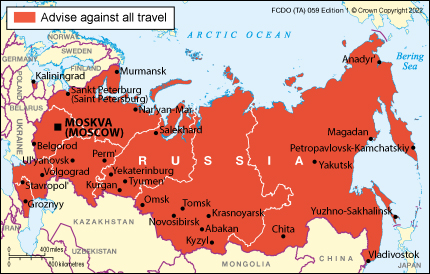
The Foreign, Commonwealth & Development Office ( FCDO ) provides advice about risks of travel to help British nationals make informed decisions. Find out more about FCDO travel advice .
FCDO advises against all travel to Russia
Your travel insurance could be invalidated if you travel against FCDO advice. Consular support is also severely limited where FCDO advises against travel.
FCDO advises British nationals against all travel to Russia due to the risks and threats from its continuing invasion of Ukraine. The situation in Russia is unpredictable. This includes:
- security incidents, such as drone attacks, happening in some parts of the country
- lack of available flights to return to the UK
- limited ability for the UK government to provide consular assistance
There is also a high likelihood that terrorists will try to carry out attacks, including in major cities. See ‘Safety and Security’ section .
Security situation in Russia
The Russian invasion of Ukraine continues. There are reports of drone attacks and explosions in areas in western and southern Russia, particularly near the Russian border with Ukraine, Moscow and St Petersburg.
Political rallies and demonstrations can take place in Moscow, St Petersburg and across Russia. Check the local media for the latest information. Be vigilant and avoid any political demonstrations or gatherings.
The situation remains unpredictable and could escalate without warning.
Leaving Russia
FCDO advises British nationals to consider leaving Russia.
If you do not need to be in Russia, we strongly advise you to consider leaving.
You cannot fly directly from Russia to the UK or through EU countries. Commercial flight options are limited and can sell out quickly. Check with your airline or travel provider.
British nationals should exercise extreme caution at all times. Travel within or out of Russia is at your own risk.
You cannot fly direct from Russia to the UK or through EU countries. There are limited commercial airlines with indirect flights via the Middle East, Serbia and Turkey. Check the latest information with your airline or travel provider.
Land borders may be busy. Be prepared for a long wait to exit Russia. You may also be questioned at the border. During periods of unrest, check the local media for updates on the situation before travelling.
Road border crossings between Finland and Russia will be closed until at least 11 February 2024. Consult the Finnish border guard website for up-to-date information. Further changes may be announced at short notice.
Some European countries have restricted or banned the entry of vehicles registered in Russia, this includes:
If you plan to drive a vehicle registered in Russia into Europe check that you are eligible to do so.
Some bus companies have international routes. The situation may change quickly. From 18 November 2023, Finland will restrict entry at some road border crossings (See ‘Travelling from Russia to Finland’). Check these companies for availability of buses, timetables and tickets:
- Ecolines – buses to Riga (Latvia), Tallinn (Estonia), Vilnius (Lithuania) and other destinations in Europe
- Baltic Shuttle – buses from St Petersburg to Tallinn (Estonia)
- Lux Express – buses from St Petersburg to Riga (Latvia), Tallinn (Estonia)
Travelling from Russia to Latvia
Check the travel advice for Latvia .
See the Latvian government website for information on crossing the border.
Travelling from Russia to Finland
Check the travel advice for Finland .
Road border crossings between Finland and Russia will remain closed until further notice. Consult the Finnish border guard website for up-to-date information. Further changes may be announced at short notice.
The border crossing points for maritime traffic at Haapasaari, the port of Nuijamaa and Santio will be closed to leisure boating from 15 April until further notice.
The train service from Russia to Finland is no longer available.
Travelling from Russia to Estonia
Check the travel advice for Estonia .
See the Estonian police and border guard website for information on crossing the border.
From 1 February 2024, it is not possible to cross the border by vehicle via the Narva-Ivangorod crossing point, whilst construction works take place on the Russian side. The crossing is open to pedestrians.
Travelling from Russia to Lithuania
Check the travel advice for Lithuania .
If you’re planning to cross into Lithuania by road from Kaliningrad oblast at the Kybartai border crossing point, see the Lithuanian state border crossing website .
Travelling from Russia to Norway
Check the travel advice for Norway .
Staying in Russia
If you decide to stay in Russia, you should:
- keep your departure plans under constant review
- ensure your travel documents are up to date
- follow local media
- stay alert to security warnings and follow the advice of local authorities
- take cover in buildings or underground and avoid windows in the event of drone attack
- sign up to email alerts for Russia travel advice
Read FCDO advice on what to do if you’re affected by a crisis abroad and how to prepare.
Support for British nationals in Russia
The British Embassy in Moscow and British Consulate Ekaterinburg are open, but the situation could change at short notice.
In person consular support in Russia is limited. It is very limited in parts of Russia because of the security situation and the size of the country, particularly in the North Caucasus.
If you need consular assistance, call our 24-hour helpline +7 495 956 7200 and select the option for consular services for British nationals.
Contact the Russian emergency services on 112.
Dual nationals
Dual British-Russian nationals are treated as Russian nationals by local authorities. The consular support FCDO can provide is severely limited. If you are arrested or detained, Russian authorities are unlikely to allow us consular access.
In 2022, Russia declared a partial mobilisation of Russian citizens to join the military forces. Military recruitment continues. Anyone with a Russian passport could be conscripted.
In August, Russian law was amended to stop Russian nationals eligible for military conscription from leaving Russia from the day their draft notice appears on the federal electronic conscription register.
Before you travel
No travel can be guaranteed safe. Read all the advice in this guide as well as support for British nationals abroad which includes:
- advice on preparing for travel abroad and reducing risks
- information for women, LGBT+ and disabled travellers
Follow and contact FCDO travel on Twitter , Facebook and Instagram . You can also sign up to get email notifications when this advice is updated.
Travel insurance
If you choose to travel, research your destinations and get appropriate travel insurance . Insurance should cover your itinerary, planned activities and expenses in an emergency.
Related content
Invasion of ukraine.
- UK visa support for Ukrainian nationals
- Move to the UK if you're coming from Ukraine
- Homes for Ukraine: record your interest
- Find out about the UK’s response
Is this page useful?
- Yes this page is useful
- No this page is not useful
Help us improve GOV.UK
Don’t include personal or financial information like your National Insurance number or credit card details.
To help us improve GOV.UK, we’d like to know more about your visit today. We’ll send you a link to a feedback form. It will take only 2 minutes to fill in. Don’t worry we won’t send you spam or share your email address with anyone.

Is it possible to come to Russia in 2023?
Feb 10, 2023
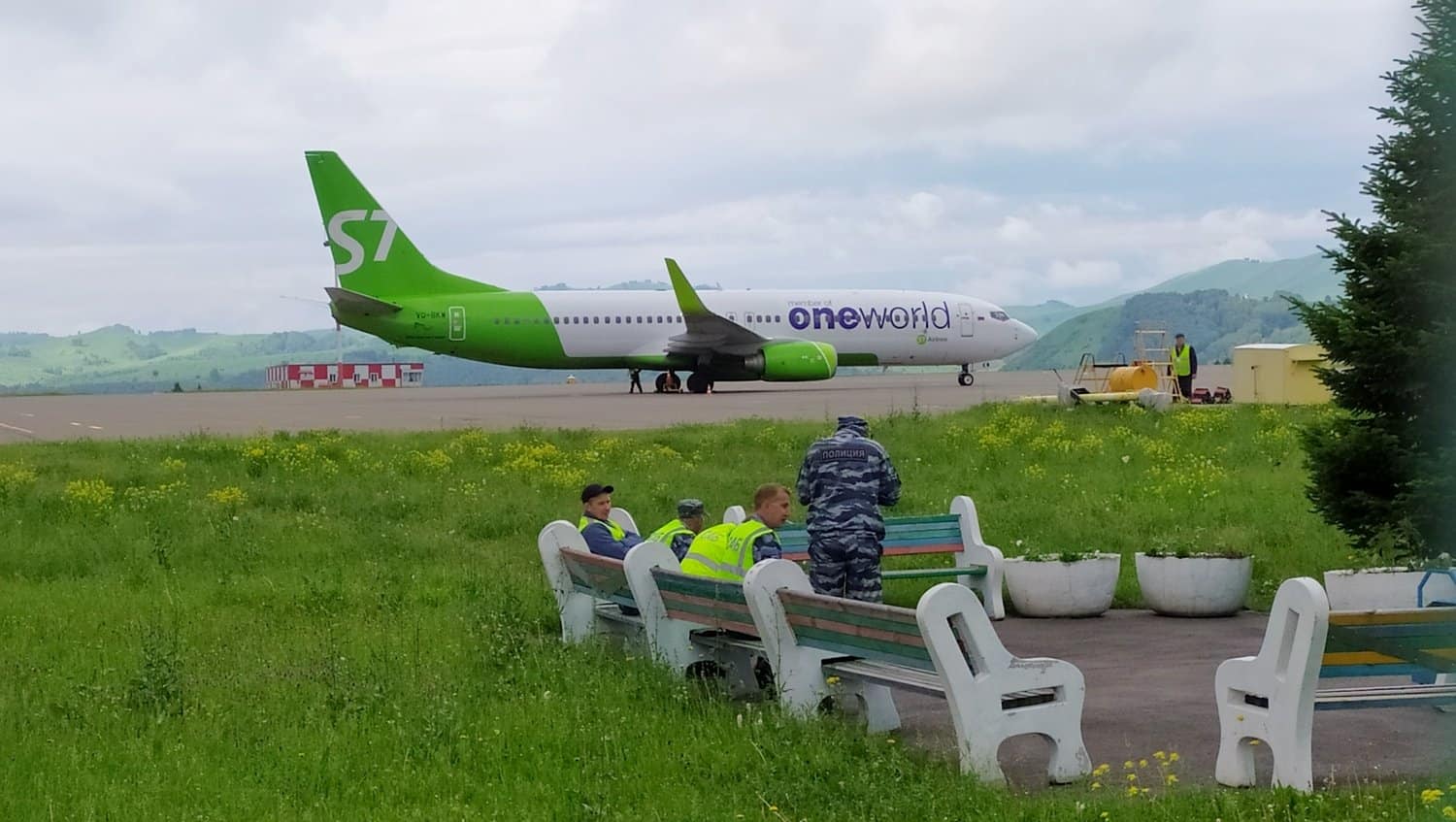
Yes, it is possible to come to Russia. In this post we will explain to you possibilities and how to do the necessary steps to get to Russia.
About Safety
Although there are a lot of governments that advice not to visit Russia as it would not be safe, this is not completely true. Visiting Russia is possible, and most of all, the biggest part of Russia is safe to travel. You better don’t visit some regions, like the border between Russia and Ukraine but a region like Altai Republic is absolutely safe. In general the attitude of Russian people didn’t change towards foreigners. They are still very interested in where you are from, why you visit their country and what places you want to see.
Getting a visa
At this moment you can apply for a business or tourist visa in your country, Russia is still granting business, tourist and privates visa’s to foreigners. You need a few documents of course for that. Your passport, a health insurance declaration, an application form with photo’s (you can fill it in here ) and an invitation-letter from an official tour-operator like us. Since end of last year there are some changes in the visa’s, but we will write another post about that. If you have any questions about it, just contact us.
Travel to Russia
The next question is, how to get there. Of course, due to the sanctions there are some issues that you should be aware of. From most countries you can’t simply book a direct flight as it used to be. But there are some possibilities for you. Well known routes are flying via Turkey (Istanbul), Dubai, Kazakhstan and Serbia or via Finland (Helsinki) and then continue to cross the border between Finland and Russia by bus or taxi to go to St. Petersburg. Another route is via Gdansk (Poland) and then cross the border between Poland and Russia by bus/taxi to go to Kaliningrad. From Kaliningrad there are many domestic flights.
Maybe you noticed that some routes fly to a place outside Russia to continue by bus/taxi, that is because it is not easy to book a flight to Russia or a domestic flight inside Russia directly. If you book a trip with us, we can assist you in purchasing the tickets necessary to come to us.
Travel in Russia
First of all, you can’t use your foreign bank or credit-card, so you have to bring cash money to exchange that in a bank to rubbles. The maximum amount to bring into Russia per person is 10.000 dollars. Have a look which bank has the best rates because between banks there can be a big difference.
Before it was easy to use sites like booking.com or Airbnb.com to book accommodation. This is not possible anymore at the moment. But, as with many things, Russians found substitutes and moved to other sites like ostrovok.ru. It is easy to book and most accommodations you can pay when you arrive. Also many accommodations have free cancellation policies.
To save you some (actually it can be a lot) of money it is recommended to buy a Russian sim-card for your phone. If you stay in a hotel your whole trip, maybe you can use the Wifi there, but when you move around a lot it is easier to have your own sim-card. For a small amount of money you can buy it in a shop and use it for the time you are in Russia. Please be aware that depending on where you go, the preferent provider can be different as they are not available everywhere. Again, if you are travelling with us, we can organize this before your arrival and you don’t even have to go to the shop, just insert the sim-card and start using it.
So what does all this mean, well, it is very well possible to come to Russia and to have a great trip, or visit family and friends. There are some things to pay attention to but with some effort they are easily to overcome. As usual we can assist with all the necessary things when you book with us.
See you soon!
24 Comments
Hi, Can you please help me get health insurance and invitation visa to Russia? I am amazed on how hard to get this document and I speak, write and read Russian. I have been searching every website and no one able to provide this letter of invitation.
Paul, please sent an email to [email protected]
Hi Paul, not sure if you have found it yet. But the Russian consulate in Australia directed me to an Armenian company – RGS. It worked perfectly and I was able to get my Russian health insurance through them, no problem. Hope that helps.
I went visit in rasiya
Great article thank you for the factual and useful information. Actually, I’ve travelled to Russia twice since March last year. My wife is Russian so that makes it easier. But logistically I had no trouble coming from Australia. People I speak with in Australia are very curious as to what it’s like in Russia at the moment. And I am happy to tell them all the positive stories, similar to what you said in the article. Already looking forward to my next trip to beautiful Russia and especially hoping to visit Altai sometime!
Hi, Dennis . Thanks for all the information. Wondering what flights fly to Russia from Australia? I want to travel to Sochi and Moscow Cheers Nav
Thank you so much for this infomation. It is difficult to find information since the sanctions have been imposed. I am wanting to travel to Russia in Sept/Oct of 2023 and specifically to travel on the Trans Siberian. Can you tell me when you think it might be open to the part through Mongolia to Beijing. Thank you so much Bev. Canada
Hi Bev, Sorry but we only organize trips in Altai, we really don’t know the situation regarding the Transiberian Express.
I am in the same boat as you. let me know if you are able to find any information.
Is it possible to make a full day To St. Petersburg from Moscow. I am planing one week trip in Moscow.
Hi Isaura, we only organize trips in Altai, if you need info about Moscow & St. Petersburg please visit Tstours.ru, they are specialised in both cities and speak fluently English.
Can someone give me some more info or details to go to russia? My girlfriend is russian, but i wanna go to moscow!! Someone got some tips or helpfully info?
Hi Dyonbeauchampet, please sent an email to [email protected] with your specific questions, from where you want to come to Russia and when? regards, Kaichitravel.
Did you find more information? I’m in the same boat 🙂
Hi, please sent an email to [email protected] with your questions. We will try to answer all your questions. Regards Kaichitravel.
Hi Is it possible to travel by road from Baku to Makhachkala and vise-versa, Dagestan oblast
Hi, we are sorry, but we only organise tours in Altai. Maybe some toher tour-organiser in DAgestan knows this. regards Kaichitravel
Hey Laura can I bring € instead of $ to change in Russia
Hi, yes you can.
Visa Updates:
Russia now granted fast and online E Visa applications for 52 countries. No more need for Tourist or Business Visas
https://electronic-visa.kdmid.ru/index_en.html
Hi Lisa, you are right the e-visa are available since 1 august, but please check if your country is on the list for that. And keep in mind that an e-visa is only valid for 16 days, so if you want to stay longer, you still need an invitation letter and regular visa. Regards Kaichitravel
Is it possible for UK citizens to visit Russia? I was there in 2018 & really enjoyed it.
Hi, yes that is possible. You cannot use the e-visa but you can apply for a regular tourist visa. If you want a invitation letter from us, please write an email to [email protected]
Submit a Comment Cancel reply
Your email address will not be published. Required fields are marked *
Submit Comment
This site uses Akismet to reduce spam. Learn how your comment data is processed .
Recent posts
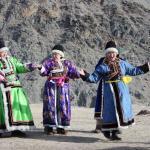
Subscribe To Our Newsletter
You have successfully subscribed.
Kaichi Travel
Adventure travel, nature tours to Altai – one of the most beautiful places in Siberia.
© 2023 by Kaichi Travel
Privacy Policy Cookie Policy
Booking Terms & Conditions
- Our company
- Why join us
- Why travel to Altai
- About Altai
- Altai Attractions
- Our partners
- Tour calendar
- Blossoming mountains
- Explore Altai
- Altai: breathtaking valleys & lakes
- Two regions – one Altai
- Tailor-made tours
- What are trips like
tel.: +7 983 103 88 55 (WhatsApp)
e-mail: [email protected]
- Bahasa Indonesia
- Slovenščina
- Science & Tech
- Russian Kitchen
Is it possible to visit Russia as a tourist right now? (Q&A)
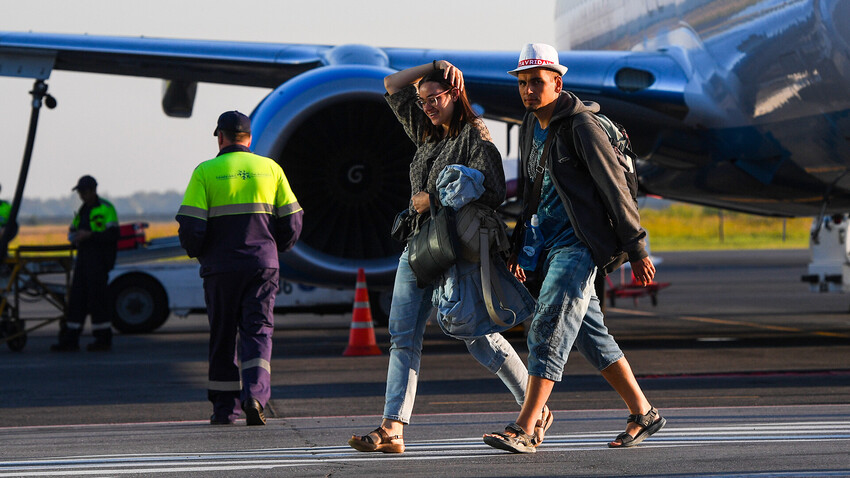
Who can enter Russia as a tourist?
At present, people from 80 countries can enter Russia. There are two main conditions: first, one must be a citizen of that country or have a permanent residence permit; and second - one needs to enter Russia by plane. The primary document that regulates entry during the coronavirus pandemic is Order no. 635-r (March 16, 2020), which is regularly updated.
Some of the countries on the list include the United States, Britain, Greece, Germany, Tunisia, Israel, Japan, Armenia, Qatar, Portugal, Mexico, Croatia, Belgium, China, France, Denmark, New Zealand, Iran, Peru, Norway and Argentina. Click here for the full list.
In the meantime, any country with which Russia currently has a travel agreement can serve as the port of departure (however, the transit country must be on the above list).
What type of visa is required?
Those who already have a valid Russian visa - and citizens of the above countries - can enter Russia using that visa. Those who do require a visa can submit their documents at the Russian consulate in their home country.
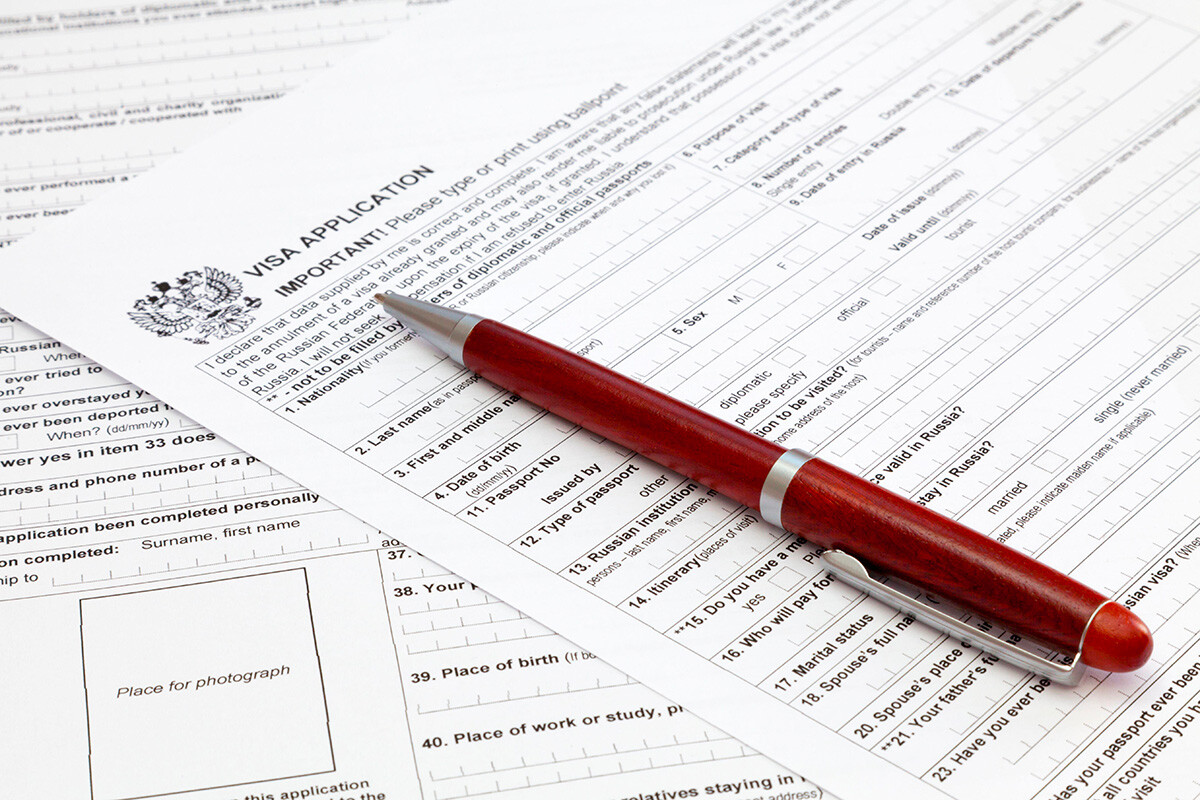
What is still not possible at this point is obtaining a unified electronic visa (a type of visa that is valid for up to 16 days, takes only four days to process and does not require submitting any documents relating to the purpose of visit). Therefore, in order to receive a regular tourist visa (valid up to six months) it is necessary to have a confirmed accommodation booking or an agreement with a travel agency.
Is a COVID test required?
Yes, PCR tests must be performed no earlier than 48 hours before arriving in Russia. The results must be printed in Russian or English (this is required even if you received a Sputnik-V vaccine shot). If you’re flying with children, they, too, must obtain a test, irrespective of age. And a form for arrivals must be filled in before entering the country.
Who is not affected by the rules?
These restrictions don’t apply to foreigners with a valid Russian residence permit or those with close relatives. They can enter Russia from any country using any means of transportation, including by land.
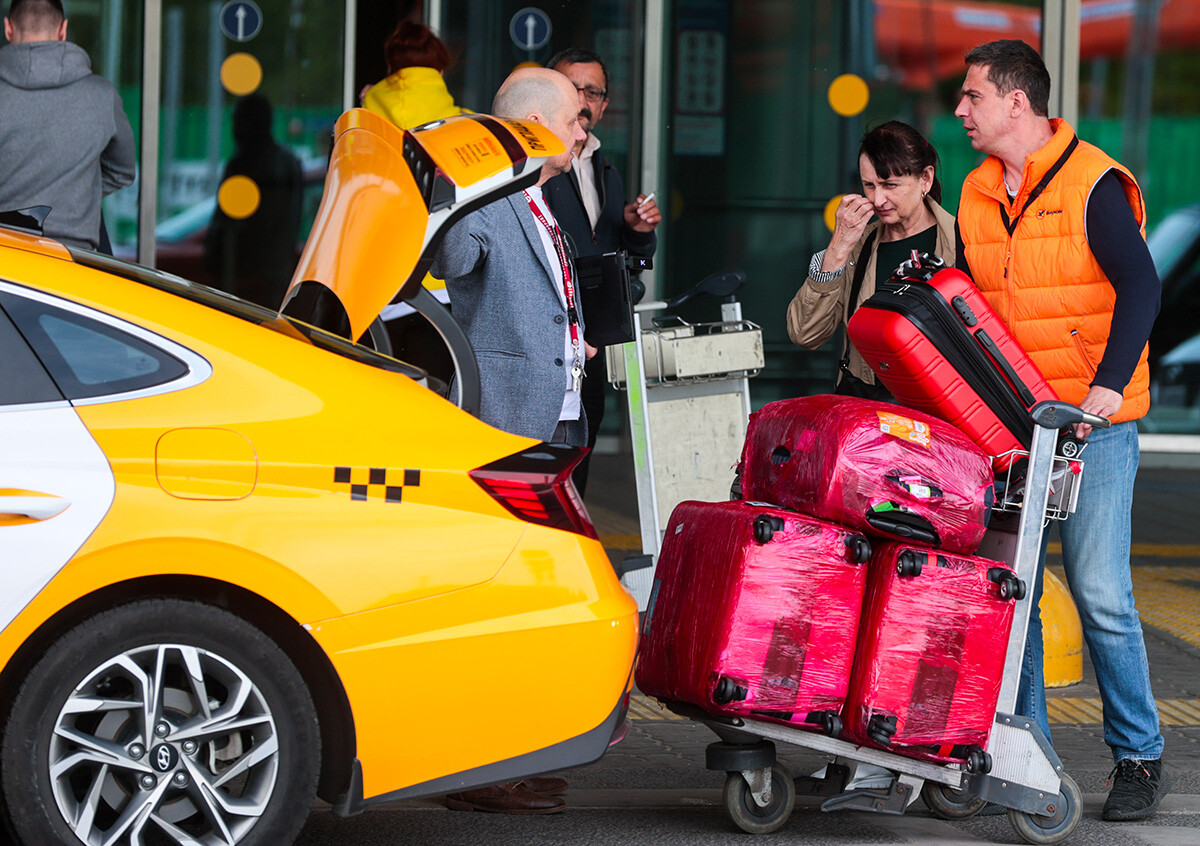
They also do not apply to partially recognized republics of Abkhazia and South Ossetia, as well as citizens of Belarus (or those with Belarusian permanent residence permits), Kazakhstan and citizens of the Donetsk and Lugansk national republics. Entering by land is also possible when traveling from Mongolia or China.
Furthermore, if Eurasian Economic Union citizens cross over by land, they don’t have to submit a coronavirus test or fill out the arrivals form.
Is vaccination required?
No. The QR codes required for visiting public gatherings before spring (including cafes, bars, hotels, etc.) are no longer required in the majority of regions. The same goes for various other COVID restrictions: regions have the final say, but almost all have been lifted.
What about masks?
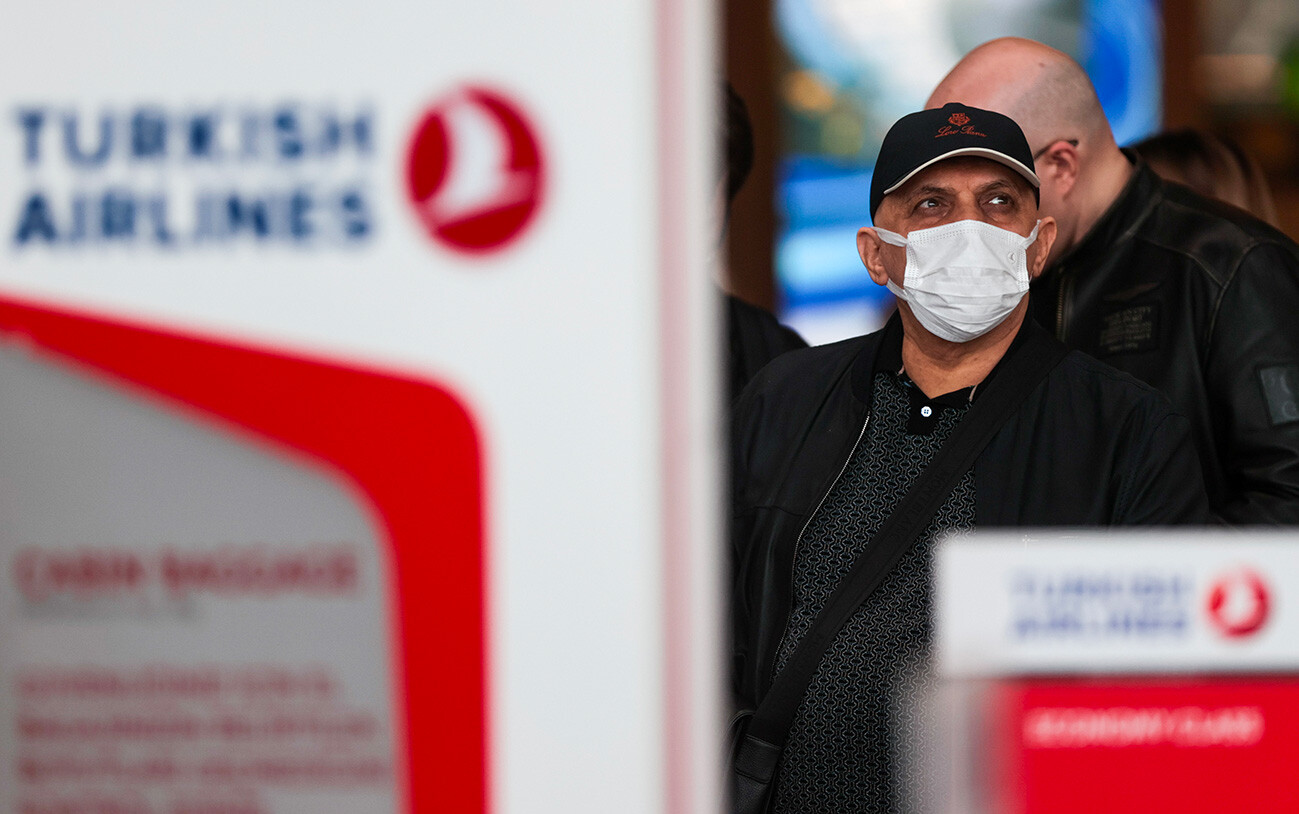
Masks are also no longer a requirement. However, some regions still require people to wear masks in some places, including stores, pharmacies, shopping malls, movie theaters and so on. In Moscow, the rule on masks has been completely lifted, while, for example, in Kaliningrad, some places still enforce them.
Are there any quarantine regulations in place?
No, you will not be required to quarantine on arrival to Russia. However, if you get sick in Russia, you will have to be quarantined for a period of seven days at your own expense. Those who have come in contact with infected people do not require quarantining (provided they did not contract the coronavirus).
Important! In many countries, there are still restrictions on LEAVING for the purpose of tourism, so having a Russian visa does not guarantee you will get permission to leave your country. This must be clarified before making any trips.
The information listed here is valid as of June 1, 2022.
If using any of Russia Beyond's content, partly or in full, always provide an active hyperlink to the original material.
to our newsletter!
Get the week's best stories straight to your inbox
- Russia at sunrise: 20 breathtaking PHOTOS
- The most dangerous cities in the USSR
- This bizarre ‘dancing’ forest continues to baffle experts (PHOTOS)
This website uses cookies. Click here to find out more.

Senate Republican leader backs forced Chinese divestment from TikTok

Norfolk Southern to settle Ohio derailment lawsuit, pay $600 million

Senior doctors in England accept new pay offer and end strikes

South Korea's second spy satellite launched by SpaceX
Is it possible to visit russia as a tourist in 2023.

Visiting Russia as a tourist in 2023 is possible, but may pose some challenges worth considering beforehand.
Yes, traveling to Russia as a tourist in 2023 is possible. Here's what to look out for if you're preparing for your dream trip.
Visa requirements
First things first, it is worth checking if you need a visa to cross the Russian border. In 2023, citizens of some 65 countries can visit Russia without a visa. This includes most of the post-Soviet states like Azerbaijan, Armenia, Belarus, Kazakhstan, Kyrgyzstan, Moldova, Tajikistan, Uzbekistan, as well as Ukraine.
Additionally, citizens of some countries in South and Central America - including Argentina, Brazil, Bolivia, Chile, Colombia, Nicaragua, Paraguay, Panama, Peru, Venezuela, Guatemala, Honduras, Costa Rica, El Salvador, Uruguay, Ecuador - do not need a visa to travel to Russia.
Citizens of Israel, South Africa, Cuba, Montenegro, Thailand, South Korea, United Arab Emirates, Qatar, Andorra, Serbia, Bosnia and Herzegovina, North Macedonia, Mongolia, Botswana enjoy visa-free regime with Russia, too.
For the full list of countries, click here .

Alexander Kislov
* Data for the infographics is from November 2022 and was obtained from the Russian consular information website.
* The status of a particular country is subject to change. We advise additionally researching the relevant information in each particular case before booking any trip to Russia.
* Visa waivers may apply for holders of diplomatic or military service passports, select businessmen, air crew members, members of a ship or train crew, professional truck drivers, organized tourist groups and people who have official permission to live in some border regions.
Is it safe to travel to Russia right now?
Russia as a travel destination received a fair share of negative PR from various sources in early 2022.
Some official travel accounts run by governments of countries like the U.S. , Australia , Great Britain and others advise their citizens to abstain from non-essential travel to the country.
That said, it is always advisable to evaluate safety risks when traveling to any foreign country. Traveling to Russia is no exception. However, Moscow, St. Petersburg and other major Russian cities have been widely regarded as being safe , especially in comparison to other popular tourist destinations.
Little has changed in major Russian cities from the point of view of tourists or local residents. Consequently, the most extreme and vocal concerns over security may be disregarded as being too alarmist.
That said, logistics pose the greatest challenge for tourists traveling to Russia in 2023. A number of countries closed their national airspace for Russian air companies resulting in more complicated logistics for tourists who intend to visit Russia in 2023.
However, specific changes depend on a particular country from where a tourist departs. In some cases, direct flight routes remain intact. For example, nothing has changed for tourists from China, India, Turkey, Middle Eastern countries and the majority of post-Soviet states. They can book direct flights to Russia's main airports.
Tourists departing from European capitals will have to book connecting flights via Turkey or countries in the Middle East. This makes tickets more expensive and flights longer. However, it is still possible to travel to Russia from virtually any country in the world.
It should be noted that every country has its own nuances that must be taken into account beforehand. For example, the Indian Embassy in Russia advises Indian nationals against traveling to Russia via third countries. According to the embassy website, Indian travelers should choose only direct flights from Delhi to Moscow, otherwise they risk being denied entry into Russia.
In another instance, the British government prohibited its citizens from purchasing tickets on Russian airlines that were under sanctions. Nonetheless, the British authorities made an exception for those journeys originating in or within Russia: in this case, British nationals may purchase tickets from Russian companies without breaching UK sanctions.
Covid restrictions, vaccination status & quarantine
In 2022, Russian authorities canceled Covid-related restrictions for Russian citizens and foreign tourists, alike.
In 2023, foreign nationals no longer need to provide results of a negative PCR test when entering Russia by any mode of transport. Therefore, foreign travelers no longer need to take a coronavirus test in advance before departure.
Furthermore, Russian authorities lifted Covid-related restrictions that required visitors to provide a specific reason for visiting the country facilitating tourist traveling.
The only remaining Covid-related regulation is a requirement to fill in a questionnaire. Passengers - both Russian and foreign citizens - will be asked to fill out the paper version of the questionnaire on board during their flight to Russia.
Click here to find out who can travel to Russia without a visa in 2023.
Dear readers,
Our website and social media accounts are under threat of being restricted or banned, due to the current circumstances. So, to keep up with our latest content, simply do the following:
- Subscribe to our Telegram channel
- Subscribe to our weekly email newsletter
- Enable push notifications on our website
- Install a VPN service on your computer and/or phone to have access to our website, even if it is blocked in your country
RBTH 4th February 2023, 08:56 GMT+11
Read This Next
Big News Network
- Big News Network News Agency
- Midwest Radio Network
- Mainstream Media
BIG NEWS NETWORK.COM
- Contact & Support
- Terms & Conditions
PRODUCTS & SERVICES
- News Releases
Copyright © 1998-2024 Big News Network All rights reserved. ISSN : 2616-6917
Featured on

- What is a visa?
- Electronic Visa (eVisa)
- Visa on Arrival
- Appointment Required Visa
- Invitation Letter
- Arrival Card
- Passport Renewal
- Project Kosmos: Meet the man with the world's most challenging travel schedule
- Australia Visa and ETA Requirements for US Citizens Explained
- Brazil eVisa for US Citizens
- India Tourist Visa for UK Citizens
- Possible B1/B2 Visa Questions During the Interview
Select Your Language
- Nederlandse
- 中文 (Zhōngwén), 汉语, 漢語
Select Your Currency
- AED United Arab Emirates Dirham
- AFN Afghan Afghani
- ALL Albanian Lek
- AMD Armenian Dram
- ANG Netherlands Antillean Guilder
- AOA Angolan Kwanza
- ARS Argentine Peso
- AUD Australian Dollar
- AWG Aruban Florin
- AZN Azerbaijani Manat
- BAM Bosnia-Herzegovina Convertible Mark
- BBD Barbadian Dollar
- BDT Bangladeshi Taka
- BGN Bulgarian Lev
- BIF Burundian Franc
- BMD Bermudan Dollar
- BND Brunei Dollar
- BOB Bolivian Boliviano
- BRL Brazilian Real
- BSD Bahamian Dollar
- BWP Botswanan Pula
- BZD Belize Dollar
- CAD Canadian Dollar
- CDF Congolese Franc
- CHF Swiss Franc
- CLP Chilean Peso
- CNY Chinese Yuan
- COP Colombian Peso
- CRC Costa Rican Colón
- CVE Cape Verdean Escudo
- CZK Czech Republic Koruna
- DJF Djiboutian Franc
- DKK Danish Krone
- DOP Dominican Peso
- DZD Algerian Dinar
- EGP Egyptian Pound
- ETB Ethiopian Birr
- FJD Fijian Dollar
- FKP Falkland Islands Pound
- GBP British Pound Sterling
- GEL Georgian Lari
- GIP Gibraltar Pound
- GMD Gambian Dalasi
- GNF Guinean Franc
- GTQ Guatemalan Quetzal
- GYD Guyanaese Dollar
- HKD Hong Kong Dollar
- HNL Honduran Lempira
- HTG Haitian Gourde
- HUF Hungarian Forint
- IDR Indonesian Rupiah
- ILS Israeli New Sheqel
- INR Indian Rupee
- ISK Icelandic Króna
- JMD Jamaican Dollar
- JPY Japanese Yen
- KES Kenyan Shilling
- KGS Kyrgystani Som
- KHR Cambodian Riel
- KMF Comorian Franc
- KRW South Korean Won
- KYD Cayman Islands Dollar
- KZT Kazakhstani Tenge
- LAK Laotian Kip
- LBP Lebanese Pound
- LKR Sri Lankan Rupee
- LRD Liberian Dollar
- LSL Lesotho Loti
- MAD Moroccan Dirham
- MDL Moldovan Leu
- MGA Malagasy Ariary
- MKD Macedonian Denar
- MNT Mongolian Tugrik
- MOP Macanese Pataca
- MUR Mauritian Rupee
- MVR Maldivian Rufiyaa
- MWK Malawian Kwacha
- MXN Mexican Peso
- MYR Malaysian Ringgit
- MZN Mozambican Metical
- NAD Namibian Dollar
- NGN Nigerian Naira
- NIO Nicaraguan Córdoba
- NOK Norwegian Krone
- NPR Nepalese Rupee
- NZD New Zealand Dollar
- OMR Omani Rial
- PAB Panamanian Balboa
- PEN Peruvian Nuevo Sol
- PGK Papua New Guinean Kina
- PHP Philippine Peso
- PKR Pakistani Rupee
- PLN Polish Zloty
- PYG Paraguayan Guarani
- QAR Qatari Rial
- RON Romanian Leu
- RSD Serbian Dinar
- RUB Russian Ruble
- RWF Rwandan Franc
- SAR Saudi Riyal
- SBD Solomon Islands Dollar
- SCR Seychellois Rupee
- SEK Swedish Krona
- SGD Singapore Dollar
- SHP Saint Helena Pound
- SLL Sierra Leonean Leone
- SOS Somali Shilling
- SRD Surinamese Dollar
- SVC Salvadoran Colón
- SZL Swazi Lilangeni
- THB Thai Baht
- TJS Tajikistani Somoni
- TOP Tongan Pa anga
- TRY Turkish Lira
- TTD Trinidad and Tobago Dollar
- TWD New Taiwan Dollar
- TZS Tanzanian Shilling
- UAH Ukrainian Hryvnia
- UGX Ugandan Shilling
- USD United States Dollar
- UYU Uruguayan Peso
- UZS Uzbekistan Som
- VND Vietnamese Dong
- VUV Vanuatu Vatu
- WST Samoan Tala
- XAF CFA Franc BEAC
- XCD East Caribbean Dollar
- XOF CFA Franc BCEAO
- XPF CFP Franc
- YER Yemeni Rial
- ZAR South African Rand
- ZMW Zambian Kwacha
We've updated our app!
Download it now
Russia Visa: Entry requirements and pre-travel information for Russia
Welcome to russia.
- Russia Business Invitation Letter
- Russia Tourist Invitation Letter
- Russia eVisa
Traveling to Russia? You may need a visa – find out if you do, which type, and how to apply so you can get the paperwork out of the way and focus on your trip.
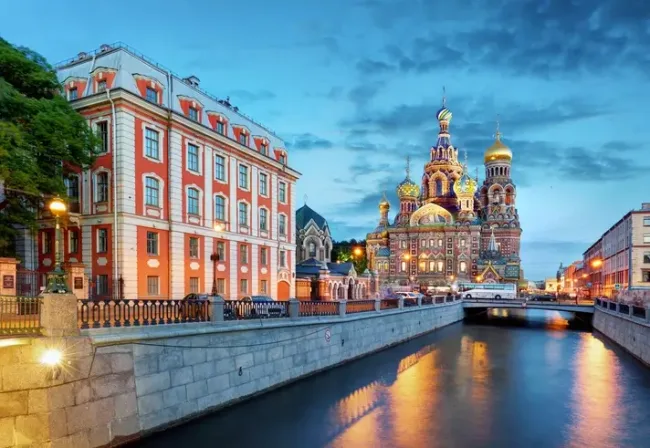
What’s a Russia eVisa and who’s it for?
Who’s the Russia eVisa for?
Travelers from over 50 foreign countries can apply for this visa to visit Russia. These include European, Korean, Mexican, Omani, Saudi Arabian, Singaporean, Turkish, Chinese, Iranian, Japanese, and Indian passport holders. Are you from another country? Find out if you can apply for this visa using our handy Visa Checker Tool .
Who’s not eligible for the Russia eVisa?
Those with visa-free access to Russia or those who require an embassy visa instead. Use our Visa Checker Tool for more info.
Travelers on a cruise or ship entering and staying in Russia for up to 72 hours.
Holders of diplomatic, service, official, and special passports from several countries.
Business travelers holding an APEC Business Travel Card.
What’s the purpose of a Russia eVisa?
Tourism and private business trips only. This Russian Visa authorizes you to enter the country only via certain air, sea, or land border crossing points.
How long can you stay with a Russia eVisa?
This is a Single Entry travel document, and the max. allowed stay is 16 days Per Entry . Note that you must use the visa within 60 days after issuance. Also, keep in mind that your arrival and departure dates will be counted as two days.
Learn more about the Russia eVisa
Apply now for your Russia eVisa
What’s a Russia Tourist Visa and who’s it for?
Who’s the Russia Tourist Visa for?
Travelers who aren’t eligible for an eVisa or don’t have visa-free access to Russia must apply for this visa at the Russian Embassy or Consulate in their home country.
What’s the purpose of a Russia Tourist Visa?
Tourism, business, and visiting friends or family.
How long can you stay with a Russia Tourist Visa? Choose from the following validity options:
Russia Tourist Visa - Single-Entry: With this visa, you can visit the country once for a stay of up to 30 days. Only citizens of the United States can get Russian visas for stays of up to 90 days.
Russia Tourist Visa - Multiple-Entry: With multiple-entry visas, you can visit the country multiple times within 90 days, for stays of up to 14 days each time.
Learn more about the Russia Tourist Visa
Apply now for your Russia Tourist Visa
What’s a Russia Tourist Invitation Letter and who’s it for?
Who’s the Russia Tourist Invitation Letter for?
All nationalities who need a Russian Tourist Visa to travel to Russia will also need the Invitation Letter.
What’s the purpose of a Russia Tourist Invitation Letter? The Russian Invitation Letter is a requirement if you want to obtain a Russian Tourist Visa.
Note that the invitation letter is not a visa, it’s part of the required documents to get the Tourist Visa.
How long can you stay with a Russia Tourist Invitation Letter?
The validity and max. allowed stay is determined by your visa instead. Every time you apply for the Tourist Visa, you must get a new invitation letter that matches your travel dates and details of your trip.
Learn more about the Russia Tourist Invitation Letter
Apply now for your Russia Tourist Invitation Letter
What’s a Russia Business Invitation Letter and who’s it for?
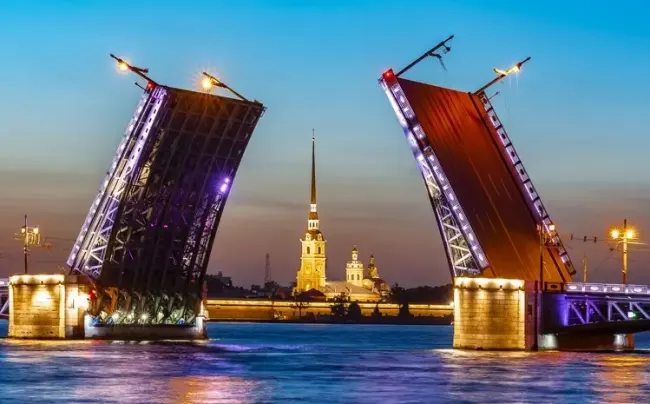
Who’s the Russia Business Invitation Letter for?
All business travelers who need a Russian Visa to visit the country will also need the Business Invitation Letter.
What’s the purpose of a Russia Business Invitation Letter?
The Russian Business Invitation Letter is a requirement if you want to obtain a Russian Visa.
Note that the invitation letter is not a visa, it’s part of the required documents to get a business visa.
How long can you stay with a Russia Business Invitation Letter?
The validity and max. allowed stay is determined by your visa instead. Every time you apply for a visa, you must get a new invitation letter that matches your travel dates and details of your trip.
Learn more about the Russia Business Invitation Letter
Apply now for your Russia Business Invitation Letter
What are Russia’s long-term visa options?
Russia offers several long-term visa options for various purposes, such as employment, study, business, and residence. Here are some of the common long-term visas:
Group Tourist Visa: For organized groups (minimum 5 people), valid for up to 1 month.
Educational Visa: For studying in Russia, valid for up to 1 year.
Working Visa: For employment purposes, linked to the length of your contract but not more than 1 year.
Humanitarian Visa: For cultural, religious, or humanitarian visits, valid for up to 1 year, extendable to 5 years in some cases.
Entry Visa: For seeking shelter, temporary residence, or Russian citizenship, varying durations up to 1 year.
Diplomatic Visa: For foreign dignitaries and officials with diplomatic passports, valid for up to 1 year.
Service Visa: For foreign officials and military personnel on official duties, valid for up to 1 year, extendable to 5 years for certain military staff.
Transit Visa: For passing through Russia, valid for up to 10 days.
Temporary Living Visa: For those granted temporary residence, valid for 4 months.
Each type of visa has specific requirements and conditions, so it's important to check which one you require for your trip.
At iVisa, we currently don’t offer these visas, but you can find out more from the nearest Russian Embassy or Consulate.
Staying healthy in Russia: Here’s what you need to know
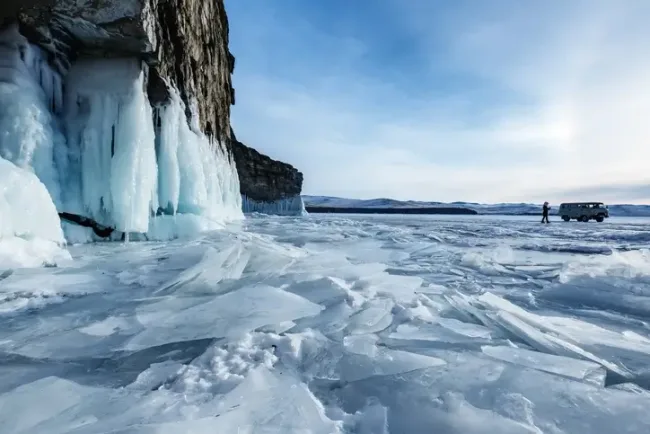
Traveling to Russia requires some preparation, especially in terms of health and safety. Here's what travelers should know.
Make sure to stay updated on routine vaccines
Ensure that routine vaccines like MMR, diphtheria-tetanus-pertussis, varicella, polio, and your yearly flu shot are up to date.
Hepatitis A and typhoid vaccines are often recommended for most travelers to Russia. Depending on your activities, you may also need hepatitis B, rabies, and Japanese encephalitis vaccines.
Keep updated with Russia's COVID-19 requirements, such as quarantine, testing, or vaccine certificates, through your airline or the Russian government website.
Medical facilities
In major cities like Moscow and St. Petersburg, healthcare facilities are generally good, with well-trained staff. However, in remote areas, medical facilities can be less advanced.
Private clinics in cities offer high standards of care but can be expensive. It's advisable to have comprehensive health insurance that covers medical expenses and evacuation.
Not all staff may speak English, especially in public hospitals or rural areas.
Health insurance
We’d always recommend taking out health insurance before you travel anywhere from any destination.
Contact your insurance provider before traveling to ensure you have the right level of coverage.
Other things to consider:
Trip cancellation, delay, and interruption benefits.
Medical expenses and medical evacuation benefits.
Baggage coverage.
Things to be aware of when visiting Russia
Keep an extra eye on the following to keep healthy and safe during your trip to Russia:
1. Tick-borne encephalitis: Prevalent in forested areas, especially from spring to early autumn. Consider vaccination if you plan to spend a lot of time outdoors.
2. Water quality: Tap water is not always potable. Use bottled or boiled water for drinking and brushing your teeth.
3. Air quality: In some cities, air pollution can be a concern, especially for those with respiratory conditions.
Medication for personal use
Follow these tips to bring into Russia some over-the-counter medicines:
Declare all medications: Report all medication for personal use to customs authorities.
Original packaging: Always keep medicines in their original containers and in transparent bags in your hand luggage.
Prescription or doctor's letter: Present the medical prescription issued by your doctor or other competent authority in English.
Check for restrictions: Call Russia's embassy to verify that all of your prescription(s) are legal to bring with you.
Quantity aligned with itinerary: Bring only a reasonable quantity that aligns with the duration of your stay to avoid complications.
Need embassy support?
For other consular needs for Russia, your first point of contact is the Russian Embassy or Consulate in your home country.
Need assistance while traveling in Russia? Your home country's embassy or consulate is your go-to place for support. Check our useful Embassies Finder to locate the nearest one.
Related Articles
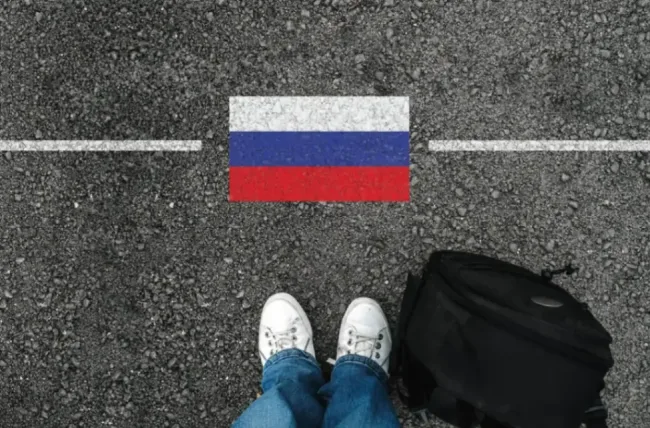
10 top tips for traveling to Russia
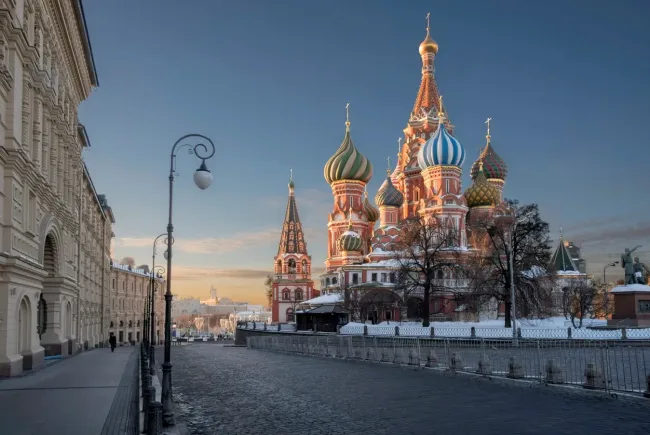
Can I visit Moscow, Russia in 2024?
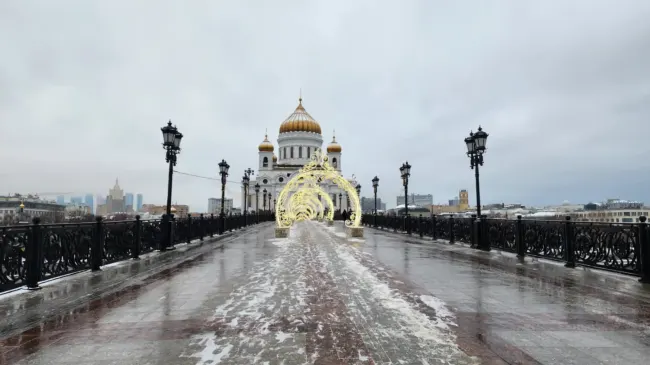
Moscow Vnukovo Airport Guide: What to expect on arrival and departure in Russia
1.2M happy customers
24/7 support
+46,000 reviews
10 years of experience
98% visa approval rate
- iVisa is NOT affiliated with any government agency. This site does not provide legal advice and we are not a law firm. None of our customer service representatives are lawyers and they also do not provide legal advice. We are a private, internet-based travel and immigration consultancy provider dedicated to helping individuals travel around the world. You may apply by yourself directly on the various government websites. The source of information: http://www.gov.ru
- International edition
- Australia edition
- Europe edition
Russia-Ukraine war: Nuclear watchdog urges restraint after Zaporizhzhia nuclear plant attack – as it happened
International Atomic Energy Agency warns about safety after Russia says Ukrainian drone detonated at nuclear power plant
- See all our Ukraine war coverage
- 5d ago Summary of the day
- 5d ago Ukraine "will lose war" if US congress withholds aid, says Zelenskiy
- 6d ago One civilian killed and four others injured after Ukrainian drones intercepted, Moscow says
- 6d ago IAEA Chief urges restraint after Zaporizhzhia nuclear plant attack
- 6d ago Ukrainian drones attack Russian-held Zaporizhzhia nuclear plant, says Russian news agency
- 6d ago Russia accused of using illegal chemical gas attacks against Ukrainian soldiers
- 6d ago Russia declares federal emergency in flood-hit Orenburg region
- 6d ago Russian foreign minister’s official visit to China will discuss war in Ukraine
- 6d ago Three civilians killed in Russian strike on Zaporizhzhia region, Kyiv says
- 6d ago Opening summary
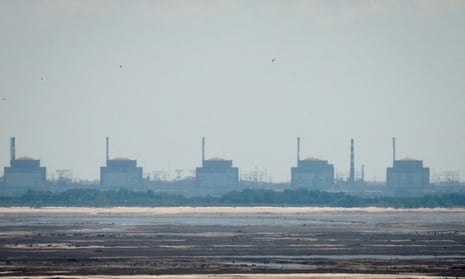
IAEA Chief urges restraint after Zaporizhzhia nuclear plant attack
The International Atomic Energy Agency (IAEA) was informed on Sunday by authorities at the Zaporizhzhia nuclear power plant that a drone detonated on site today.
“IAEA experts have been informed by ZNPP that a drone detonated on site today. Such detonation is consistent with IAEA observations,” the nuclear watchdog said in a post on a social media.
IAEA director general, Rafael Mariano Grossi, said of the attack, “I urge to refrain from actions that … jeopardise nuclear safety.”
IAEA experts have been informed by ZNPP that a drone detonated on site today. Such detonation is consistent with IAEA observations. “I urge to refrain from actions that contradict the 5 IAEA principles and jeopardise nuclear safety,” Director General @rafaelmgrossi said. — IAEA - International Atomic Energy Agency ⚛️ (@iaeaorg) April 7, 2024
Ukraine attacked the Russian-held Zaporizhzhia nuclear plant on Sunday, including a strike on the dome of the plant’s sixth power unit that caused no damage, the plant’s Russian-installed administration said in a statement.
Earlier, the administration reported a drone attack that damaged a truck parked near the station’s canteen, Russian state news agency TASS reported, citing the plant authorities.
The Guardian is unable to verify the reports.
The Zaporizhzhia nuclear plant, Europe’s largest, has been controlled by Russia since March 2022, when its forces took much of southeastern Ukraine’s Zaporizhzhia region. The plant remains close to the frontlines, and both Ukraine and Russia have regularly accused the other of shelling the plant, and risking a possible nuclear disaster.
More updates to come …
Summary of the day
UN Nuclear watchdog urges restraint after Ukraine attacked the Zaporizhzhia nuclear plant on Sunday. The International Atomic Energy Agency (IAEA) was informed on Sunday by authorities at the Zaporizhzhia nuclear power plant that a drone detonated on site today. “Such detonation is consistent with IAEA observations,” the nuclear watchdog said in a post on a social media. IAEA director general, Rafael Mariano Grossi , also said of the attack, “I urge to refrain from actions that … jeopardise nuclear safety.”
Earlier, the administration reported an Ukrainian strike on the dome of the plant’s sixth power unit that caused no damage, and an attack that damaged a truck parked near the station’s canteen, according to Russian state news agency TASS reports.
Russia has been accused of systematically using illegal chemical gas attacks against Ukrainian soldiers. Ukrainian troops claimed that they have been subjected to “almost daily” attacks from small drones dropping teargas and other chemicals. The use of such substances, which is known as CS, is banned during wartime under the Chemical Weapons Convention.
Russian foreign minister Sergei Lavrov will make an official visit to China to discuss war in Ukraine. Talks scheduled on Monday and Tuesday between Russia and China will consist of bilateral cooperation as well as “hot topics”, such as the crisis in Ukraine and the Asia-Pacific, the Russian foreign ministry has said. On Saturday, the US warned allies that China has provided geospatial intelligence to Moscow in its war against Ukraine. According to reports, China has provided Russia with satellite imagery for military purposes, as well as microelectronics and machine tools for tanks.
Three civilians were killed in a Russian attack on the frontline village of Guliaipole, in Ukraine’s southeastern Zaporizhzhia region, according to reports from the regional government. The Guardian could not independently verify these claims.
One civilian was killed and four others were injured after Ukrainian drones were intercepted in Belgorod. A woman was killed and four more people were wounded after air defences downed Ukrainian drones on the approach to Russia’s Belgorod city, according to a statement from the local governor posted on Telegram.
Ukrainian President Volodymyr Zelenskiy has said that Kyiv will lose the war against Russia if the US congress does not approve military aid to battle Moscow’s invasion. Republicans in Congress have been blocking tens of billions of dollars in military assistance for Kyiv for months.
The Russian government has declared a federal emergency over record floods in the Orenburg region. The floods, caused by rising water levels in the Ural River, forced over 4,000 people to evacuate, and has flooded nearly 6,300 houses so far, according to state media. Flooding in two more nearby regions has been deemed “inevitable” by the Kremlin. Russian authorities have opened a criminal case for “negligence and violation of construction safety rules” over the burst dam. The Orenburg regional governor said specialists assessed that the dam was built “for a different weight” and that the level of rainfall was “exceptional”.
Ukraine "will lose war" if US congress withholds aid, says Zelenskiy
Ukrainian President Volodymyr Zelenskiy said on Sunday that Kyiv will lose the war against Russia if the US congress does not approve military aid to battle Moscow’s invasion.
Republicans in Congress have been blocking tens of billions of dollars in military assistance for Kyiv for months.
“It is necessary to specifically tell Congress that if Congress does not help Ukraine , Ukraine will lose the war,” Zelensky said during a video meeting of Kyiv-organised fundraising platform United24.
Zelensky said it would be “difficult” for Ukraine to “stay” without the aid. He said that “if Ukraine loses the war, other states will be attacked.”
Russia’s invasion of Ukraine has dragged on for more than two years.
One civilian killed and four others injured after Ukrainian drones intercepted, Moscow says
A woman was killed on Sunday when shrapnel from a downed Ukrainian drone hit a car travelling in Russia’s Belgorod region, local governor Vyacheslav Gladkov has said.
In a statement posted on the Telegram messaging app, Gladkov said that four more people, including two children, had been wounded after air defences downed four Ukrainian drones on the approach to Belgorod city.
The Guardian is unable to independently verify the reports.
Flooding in two more Russian regions deemed “inevitable” by the Kremlin on Sunday.
Kremlin spokesperson Dmitry Peskov has said that flooding in Russia’s Kurgan and Tyumen was “inevitable”, amid major floods in the Ural Mountain Orenburg region, state news agency TASS reported.
TASS cited Peskov as saying that President Vladimir Putin had held phone calls with the governors of both regions.
Ukrainian drones attack Russian-held Zaporizhzhia nuclear plant, says Russian news agency
Ukrainian drones attacked the Russian-held Zaporizhzhia nuclear plant on Sunday, damaging a truck parked near the station’s canteen, Russian state news agency TASS reported, citing the plant authorities.
Russia accused of using illegal chemical gas attacks against Ukrainian soldiers

Russia has been accused of systematically using illegal chemical gas attacks against Ukrainian soldiers.
Ukrainian troops claimed that they have been subjected to regular attacks from small drones dropping teargas and other chemicals.
The use of such substances, which is known as CS, is banned during wartime under the Chemical Weapons Convention.
Read more about these “almost daily” attacks here:
Russia declares federal emergency in flood-hit Orenburg region
Russia’s government has declared on Sunday flood-hit areas in the Orenburg region a federal emergency, state media reported.
The floods, caused by rising water levels in the Ural River, forced over 4,000 people, including 885 children, to evacuate, the regional government said. State news agency Tass said that a further 2,000 homes were flooded, bringing the total to nearly 6,300 in the region.
Russian authorities have opened a criminal case for “negligence and violation of construction safety rules” over the burst dam, which was built in 2014. But the Orenburg regional governor, Denis Pasler, said specialists assessed that the dam was built “for a different weight” and that the level of rainfall was “exceptional”.
Officials in Orsk reported Sunday that four people had died, but said their deaths were unrelated to the flooding.
Russian foreign minister’s official visit to China will discuss war in Ukraine
We have had some more information come through about Russian Foreign Minister Sergei Lavrov ’s visit to China on Monday and Tuesday.
Talks between Lavrov and Chinese Foreign Minister Wang Yi , who extended the invitation to the Russian minister, will consist of bilateral cooperation as well as “hot topics”, such as the crisis in Ukraine and the Asia-Pacific, the Russian foreign ministry said.
On Saturday, the US warned allies that China has provided geospatial intelligence to Moscow in its war against Ukraine. According to reports, China has provided Russia with satellite imagery for military purposes, as well as microelectronics and machine tools for tanks.
China’s foreign ministry has not responded to a request for comment during a holiday weekend.
Reuters reported last month that Russian President Vladimir Putin will travel to China in May for talks with Chinese President Xi Jinping , in what might be the Kremlin chief’s first overseas trip of his new presidential term.
Flooding in Russia’s Orenburg remains “critical”.
The mayor of the Russian city of Orenburg said on Sunday that the situation around flooding in the city remained “critical”, and that water levels would continue to rise in the coming days, Reuters reports.
Russia said on Saturday that it had evacuated more than 4,000 people in the Orenburg region, which lies near the Kazakhstan border, due to flooding after a dam burst.
Orsk oil refinery, located in Orenburg, also suspended work on Sunday, Russian news agency cited the plant’s press service as saying. They reported that the suspension of operations was aimed at avoiding ecological risks.
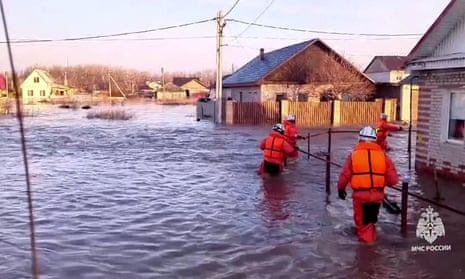
Russian foreign minister Sergei Lavrov will make an official visit to China, China’s foreign ministry said on Sunday.
Earlier this week, US Treasury Secretary Janet Yellen told journalists in Guangzhou, “We’ve been clear with China that we see Russia as gaining support from goods that China, Chinese firms are supplying to Russia.”
“Neither of us want this to be an issue with our bilateral relationship. So we’re working together,” she added.
Sergei Lavrov is expected to visit China on Monday and Tuesday.
Three civilians killed in Russian strike on Zaporizhzhia region, Kyiv says
Three civilians were killed in a Russian attack on the frontline village of Guliaipole , in Ukraine’s southeastern Zaporizhzhia region, on Sunday morning, the local governor has said.
“Two men and a woman died under the rubble of their own house, which was hit by a Russian shell,” Ivan Fedorov said on the Telegram messaging app. Fedorov said one more person was injured.
The Guardian could not independently verify the report.
Opening summary
Welcome to our continuing live coverage of Russia’s war on Ukraine . Here’s an overview of the latest news on day 774 to bring you up to speed.
Ukraine’s forces destroyed 17 attack drones launched by Russia overnight, the Ukrainian military said on Sunday.
“At night the Russian occupiers attacked Ukraine once again, using 17 attack drones. The Ukrainian air defence forces destroyed all of them,” the Ukrainian General Staff said on Facebook.
Earlier, president Volodymyr Zelenskiy warned that Ukraine could run out of air defence missiles if Russia keeps up its intense long-range bombing campaign.
More on that story shortly. In other key developments:
Zelenskiy also said on Saturday that he hoped that he and Swiss president Viola Amherd would set a date within days for a world peace summit in Switzerland with 80 to 100 countries. Russia has said such a meeting would be pointless if it did not participate. Kyiv has previously proposed a world peace summit but has said Russia would not be invited.
A close ally of populist prime minister Robert Fico has defeated a pro-western career diplomat to become Slovakia’s new president . Critics worry Slovakia under Fico will abandon its pro-western course and follow the direction of Hungary under populist prime minister Viktor Orbán. Thousands have repeatedly taken to the streets across Slovakia recently to rally against Fico’s pro-Russian and other policies.
Two Russian missile and drone strikes, one in the early hours of Saturday and a second in the afternoon, killed eight people and wounded at least 10 more people in northeastern Kharkiv , Ukraine’s second largest city, national emergency services and the city’s mayor said on Saturday. Igor Terekhov also said in Telegram post that the attack had targeted Shevchenkivskyi, a northern area of the city, Agence France-Presse reports. Terekhov said Iranian-made drones had carried out the attack, hitting at least nine high-rise buildings, three dormitories and a petrol station.
Oleg Synegubov, the region’s governor, said earlier that two men were killed in Shevchenkivskyi. Police confirmed the deaths and said a further eight people were hospitalised “with blast injuries and shrapnel wounds”. Police added that there were no casualties in a separate attack on Mala Danylivka, a village on Kharkiv’s north-west outskirts.
In the eastern region of Donetsk , artillery shelling killed four people in the village of Kurakhivka including a 38-year-old woman and her 16-year-old daughter, and a 25-year-old man in the village of Krasnohorivka was killed, local officials said.
Russia on Saturday condemned as a provocation a drone attack on a military facility of pro-Russian separatists in Moldova’s breakaway Transnistria region and called for an investigation. An explosive drone hit a facility belonging to the separatist authority’s defence ministry six km (four miles) from the border with Ukraine , the region’s security ministry said on Friday.
Ukrainian forces are still in control of the town of Chasiv Yar in eastern Ukraine despite attempts by Russian troops to break through their defences, commander-in-chief Oleksandr Syrskyi said. Russia’s RIA news agency on Friday cited an official as saying Russian forces had entered the suburbs of the town, which Moscow sees as an important staging point for Kyiv’s troops. Ukrainian military said the report was untrue, Reuters reported. “Chasiv Yar remains under our control, and all enemy attempts to break through to the settlement have failed,” Syrskyi said on the Telegram messaging app on Saturday.
On the ground in Ukraine , Russian forces were advancing, and pushing back against them was “difficult”, said Oleksandr Syrskyi, commander of Ukraine’s armed forces. Syrskyi said the situation in the Bakhmut area in the partially occupied eastern Donetsk region was particularly challenging, Reuters reported. He said Russian forces are carrying out offensive operations day and night, using assault groups with the support of armoured vehicles, as well as assaults on foot.
Tajikistan’s foreign ministry on Saturday rejected a claim by a top Russian security official that Ukraine’s embassy in the Tajik capital was recruiting mercenaries to fight against Russia. “We note that this assertion by the Russian official has no basis to it,” Russian news agencies quoted Tajik foreign ministry spokesperson Shokhin Samadi as saying.
- Ukraine war live
- Volodymyr Zelenskiy
- Vladimir Putin
Most viewed
Russia and China to deepen security cooperation in Asia, Europe
Russian foreign minister visits Beijing and also receives assurances of strengthened economic cooperation from China.
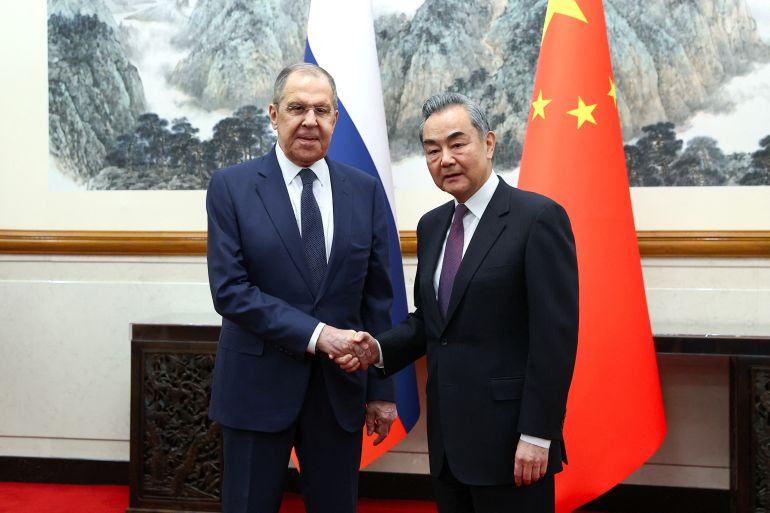
Russia and China have agreed to discuss ways to deepen their security cooperation in Asia and Europe to counter attempts by the United States to impose its will on the region, Foreign Minister Sergey Lavrov has said.
“For a long time, there was a Euro-Atlantic security structure in the form of NATO … as well as the OSCE [Organization for Security and Co-operation in Europe],” Lavrov said in Beijing on Tuesday after talks with his Chinese counterpart Wang Yi.
Keep reading
Russia, china sign new agreements, defying western criticism, can brics create a new world order, china’s fm hails ‘strategic cooperation’ in talks with russian counterpart.
But these were not “structures within which it is possible to conduct meaningful negotiations and agree on something based on a balance of interests”.
As Russia’s war in Ukraine grinds on, Lavrov said Moscow and Beijing had agreed to “start a dialogue with the involvement of our other like-minded people on this issue”.
The United States calls China its biggest rival and Russia its biggest threat, Al Jazeera’s Katrina Yu said, reporting from Beijing.
“These two countries oppose increasing US influence over Europe and the growing power of NATO, as well as what they have referred to as unilateral sanctions against both sides. So really, Russia and China here are natural partners.”
At a news conference after the meeting, Wang did not explicitly mention the US, NATO or the war in Ukraine, but said that China and Russia should “oppose hegemonism and power politics, oppose the monopoly of international affairs by a few countries”.
China’s top diplomat said the two nations must stand on the side of “fairness and justice”.
Wang “emphasised that China would continue to deepen its trading relationship, its economic relationship with Moscow at a time when Western allies are trying to isolate Putin, and isolate Moscow. So this is frustrating for the US and its allies,” Al Jazeera’s Katrin Yu reported.
US Treasury Secretary Janet Yellen said on Monday that she had difficult conversations with China during her visit about its cooperation with Moscow and warned of “significant consequences” for any Chinese companies supporting Russia’s war in Ukraine.
‘Unlawful sanctions’
Lavrov additionally denounced the “unlawful sanctions” imposed by the West against Russia and other countries and warned that the sanctions policy “is starting to be actively applied towards (China) as well”.
Wang told Lavrov that China “will support Russia’s stable development under the leadership of Putin”, according to Russian state news agency RIA Novosti.
Since Russia invaded Ukraine in 2022 it has been drawn closer to China. During a summit last year, Russia’s President Vladimir Putin and China’s President Xi Jinping declared that ties were “entering a new era” .
While China says it is a neutral party in the Ukraine conflict, it has been criticised for refusing to condemn Russia for its offensive.
Lavrov’s two-day official visit to China comes as the two nations mark the 75th anniversary of their diplomatic relations.
Chinese state-owned Global Times reported that his visit is also in preparation for Putin’s trip to Beijing, which is expected in May, in what could be the Russian leader’s first overseas trip since winning re-election .
Ukraine vows to punish 'murderers' after video of an apparent POW beheading surfaces
Ukrainian President Volodymyr Zelenskyy on Wednesday condemned a video circulating online that the country’s security services said showed a Ukrainian being decapitated by “Russian occupiers.”
“There is something that no one the world can ignore,” Zelenskyy said in Ukrainian in a video posted to his Telegram channel.
“We are not going to forget anything,” he added. “There will be legal responsibility for everything.”
The video viewed by NBC News features a man repeatedly saying “it hurts” as another man wielding a small knife appears to saw into the man’s neck.
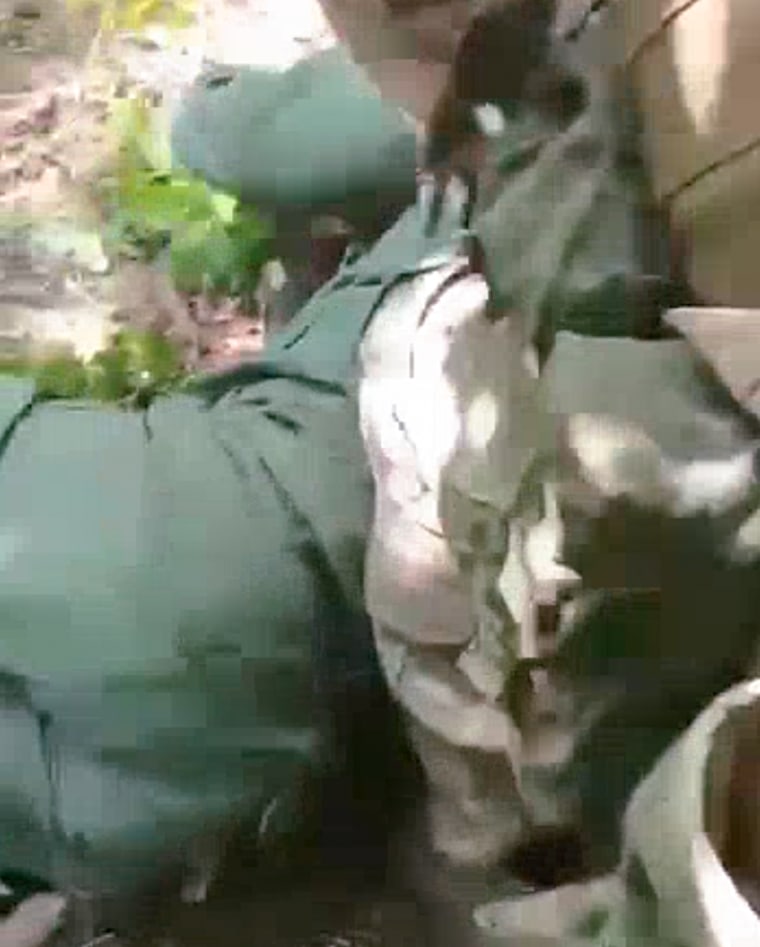
Another man then says to the one with the knife in Russian: “What, have you never chopped off a head before? Do it, do it, do it.”
Once the decapitation is finished, the knife-wielding man shows the dead man's head to the the camera.
What appears to be a Ukrainian identification document can be seen on the ground by the victim’s body while one attacker holds up a bulletproof vest with patches of the Ukrainian coat of arms and a skull.
NBC News was not able to independently verify the identity of the people in the video, its location or the date it was filmed.
Zelenskyy has described the victim as a “Ukrainian captive.”
The Security Service of Ukraine said the video showed “Russian occupiers … severely torturing a Ukrainian prisoner and cutting off his head.” NBC News has not been able to verify the allegation.
The Ukrainian government said it had started a war crime investigation after the video appeared on the internet on Tuesday.
When asked about the video on Wednesday, Kremlin spokesman Dmitry Peskov called it “horrifying.”
“In the world of fakes in which we live now, it is necessary to verify the authenticity of this video,” he added.
Yevgeny Prigozhin , the head of the Russia-based Wagner mercenary group, which has a large presence in Ukraine, said in a statement on his Telegram channel that he had seen the video but had not found that any of his fighters were “participating in the execution.”
Their comments came after Andriy Yermak, head of the Ukrainian presidential administration, questioned Russia’s presidency of the United Nations Security Council, which it assumed this month, on Telegram. The presidency rotates alphabetically each month among the 15 members.
Russia assumed the presidency after the International Criminal Court, which is not associated with the U.N., issued an arrest warrant last month for Russian President Vladimir Putin, accusing him of the war crime of illegally deporting hundreds of children from the Ukraine.
Russia, in turn, has accused Ukraine of war crimes, and the West of ignoring them.
In November, the Kremlin said that Ukrainian soldiers had executed more than 10 Russian prisoners of war. It has not provided any evidence of this or other claims.
The video that emerged Tuesday was the second apparent execution video to appear in just over a month. In March, graphic video circulated across social media showing what Kyiv’s military said was Russian forces killing an unarmed prisoner of war.
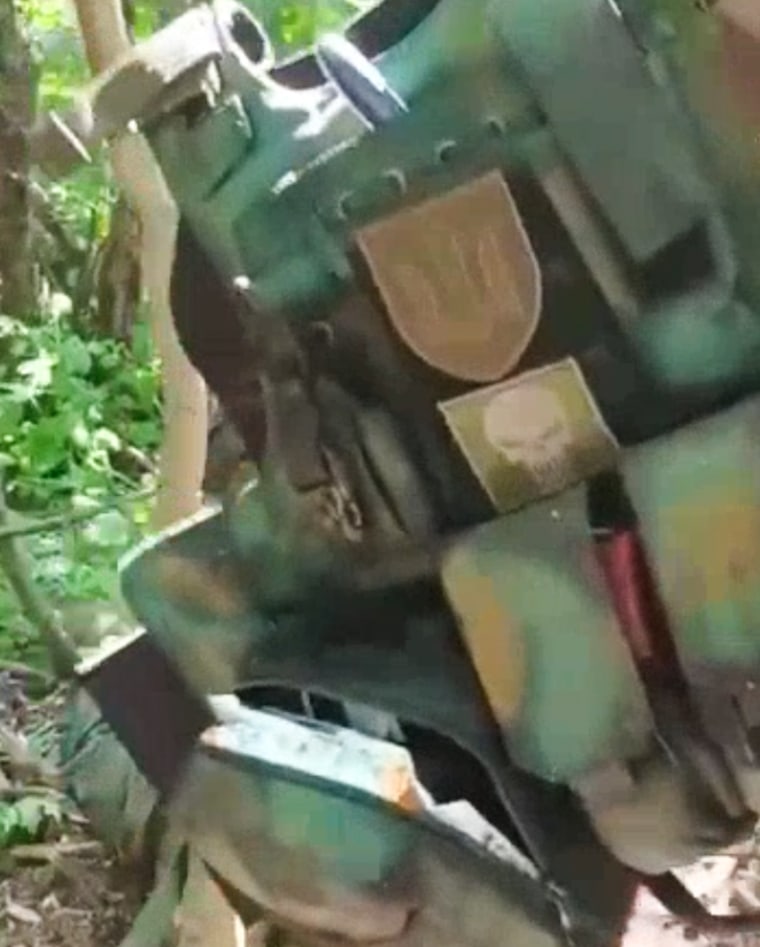
The 12-second video showed a man wearing what appeared to be a soldier’s camouflage uniform that bore a Ukrainian flag insignia, with a cigarette in his mouth.
After he quietly said, “Slava Ukraini” or “Glory to Ukraine,” gunfire could be heard almost immediately; the shooters were not shown. The man then crumples to the ground.
Ukraine’s military named the man as Tymofiy Mykolayovych Shadura. He was a member of the 30th separate mechanized brigade who had been missing around the city of Bakhmut in eastern Ukraine since early February, the army said in a Facebook post .
Kyiv has accused the Kremlin’s forces of committing atrocities throughout the war and urged international action to hold them to account. More than 74,500 such atrocities have been reported in Ukraine since Russia invaded, the prosecutor general’s office in Kyiv said last month.
Mass burial sites in the city of Mariupol as well as the the towns of Bucha and Izyum and are among the areas being investigated for possible war crimes.
Speaking at the Munich Security Conference in February, Vice President Kamala Harris said that Russia had committed “crimes against humanity” in its war against Ukraine , adding that “justice must be served.”
Caroline Radnofsky is a supervising reporter for NBC News' Social Newsgathering team based in London.
Henry Austin is a senior editor for NBC News Digital based in London.
- Share full article
For more audio journalism and storytelling, download New York Times Audio , a new iOS app available for news subscribers.

- April 12, 2024 • 34:23 How One Family Lost $900,000 in a Timeshare Scam
- April 11, 2024 • 28:39 The Staggering Success of Trump’s Trial Delay Tactics
- April 10, 2024 • 22:49 Trump’s Abortion Dilemma
- April 9, 2024 • 30:48 How Tesla Planted the Seeds for Its Own Potential Downfall
- April 8, 2024 • 30:28 The Eclipse Chaser
- April 7, 2024 The Sunday Read: ‘What Deathbed Visions Teach Us About Living’
- April 5, 2024 • 29:11 An Engineering Experiment to Cool the Earth
- April 4, 2024 • 32:37 Israel’s Deadly Airstrike on the World Central Kitchen
- April 3, 2024 • 27:42 The Accidental Tax Cutter in Chief
- April 2, 2024 • 29:32 Kids Are Missing School at an Alarming Rate
- April 1, 2024 • 36:14 Ronna McDaniel, TV News and the Trump Problem
- March 29, 2024 • 48:42 Hamas Took Her, and Still Has Her Husband
How One Family Lost $900,000 in a Timeshare Scam
A mexican drug cartel is targeting seniors and their timeshares..
Hosted by Katrin Bennhold
Produced by Asthaa Chaturvedi and Will Reid
With Clare Toeniskoetter and Lynsea Garrison
Edited by Brendan Klinkenberg and Michael Benoist
Original music by Marion Lozano , Rowan Niemisto , Dan Powell , Pat McCusker and Will Reid
Engineered by Chris Wood
Listen and follow The Daily Apple Podcasts | Spotify | Amazon Music
Warning: this episode contains descriptions of violence.
A massive scam targeting older Americans who own timeshare properties has resulted in hundreds of millions of dollars sent to Mexico.
Maria Abi-Habib, an investigative correspondent for The Times, tells the story of a victim who lost everything, and of the criminal group making the scam calls — Jalisco New Generation, one of Mexico’s most violent cartels.
On today’s episode

Maria Abi-Habib , an investigative correspondent for The New York Times based in Mexico City.

Background reading
How a brutal Mexican drug cartel came to target seniors and their timeshares .
There are a lot of ways to listen to The Daily. Here’s how.
We aim to make transcripts available the next workday after an episode’s publication. You can find them at the top of the page.
The Daily is made by Rachel Quester, Lynsea Garrison, Clare Toeniskoetter, Paige Cowett, Michael Simon Johnson, Brad Fisher, Chris Wood, Jessica Cheung, Stella Tan, Alexandra Leigh Young, Lisa Chow, Eric Krupke, Marc Georges, Luke Vander Ploeg, M.J. Davis Lin, Dan Powell, Sydney Harper, Mike Benoist, Liz O. Baylen, Asthaa Chaturvedi, Rachelle Bonja, Diana Nguyen, Marion Lozano, Corey Schreppel, Rob Szypko, Elisheba Ittoop, Mooj Zadie, Patricia Willens, Rowan Niemisto, Jody Becker, Rikki Novetsky, John Ketchum, Nina Feldman, Will Reid, Carlos Prieto, Ben Calhoun, Susan Lee, Lexie Diao, Mary Wilson, Alex Stern, Dan Farrell, Sophia Lanman, Shannon Lin, Diane Wong, Devon Taylor, Alyssa Moxley, Summer Thomad, Olivia Natt, Daniel Ramirez and Brendan Klinkenberg.
Our theme music is by Jim Brunberg and Ben Landsverk of Wonderly. Special thanks to Sam Dolnick, Paula Szuchman, Lisa Tobin, Larissa Anderson, Julia Simon, Sofia Milan, Mahima Chablani, Elizabeth Davis-Moorer, Jeffrey Miranda, Renan Borelli, Maddy Masiello, Isabella Anderson and Nina Lassam.
Katrin Bennhold is the Berlin bureau chief. A former Nieman fellow at Harvard University, she previously reported from London and Paris, covering a range of topics from the rise of populism to gender. More about Katrin Bennhold
Advertisement

IMAGES
VIDEO
COMMENTS
In 2023, citizens of some 65 countries can visit Russia without a visa. This includes most of the post-Soviet states like Azerbaijan, Armenia, Belarus, Kazakhstan, Kyrgyzstan, Moldova, Tajikistan ...
Russia: Visiting in 2023. Yekaterinburg Opera Theatre, Russia. Tourists and Business Travelers Visiting Russia in 2023. Here Is What You Will Find There. By Dr. James Pearce. I've been traveling to Russia for over a decade. I've got familial ties here and have lived in three different Russian cities. It's a country impossible to ...
Do not travel to Russia due to the unpredictable consequences of the unprovoked full-scale invasion of Ukraine by Russian military forces, the potential for harassment and the singling out of U.S. citizens for detention by Russian government security officials, the arbitrary enforcement of local law, limited flights into and out of Russia, the Embassy's limited ability to assist U.S ...
Watch also: ️ I Exchanged Euros to Rubles in Russia: https://youtu.be/nnWZWiCo4K4 ️ I Got A RUSSIAN BANK CARD (AS A FOREIGNER): https://youtu.be/91aOg7CCxJo ...
You may also find that perseverance and a sense of humour will go a long way in enriching your first-time Russian travel experience. From ... The best places to visit in September 2023 . Jul 3, 2023 • 8 min read. Architecture. 8 stunning European cities for architecture lovers. May 16, 2022 • 7 min read.
To reach the U.S. Embassy in Baku, call +994 12 488-3300, or email the American Citizens Services unit at [email protected]. Click here to see all Messages and Alerts for U.S. Visitors to Azerbaijan. Azerbaijan's land borders with its neighboring countries remain closed, except for freight transportation.
Places to explore include the city's Kremlin, with its 13 towers, and the historic Rozhdestvenskaya Street. Other activities to indulge in include watching the sunset over the confluence of the Oka and Volga Rivers, which can be viewed set against the city's Kremlin. Continue to 10 of 15 below. 10 of 15.
This certificate is only valid for one-way travel into Russia. Entry ban on vehicles with Russian license plates. In September 2023, the Baltic States (Latvia, Estonia and Lithuania) and Finland announced a ban on vehicles with Russian license plates entering their respective territories.
The FSB recorded a 17% increase in January-March 2023 visits to Russia compared with the same time last year, up from 2.78 million to 3.27 million. EU citizens made 11.8% more visits at 113,900 ...
Visit. On the morning of 20 March, Xi Jinping arrived at Vnukovo Airport, Moscow. On 21 March, he met with Vladimir Putin. [4] Residential buildings in Zaporizhzhia after Russian rocket strikes on 22 March 2023, the second day of Xi's visit to Moscow. Xi Jinping said he has a peace plan for Ukraine. [5]
Instead, Xi's three-day visit to the Russian capital, which concluded Wednesday, ... Russia, March 21, 2023. Shen Hong/Xinhua/Getty Images. No meaningful path forward on Ukraine
Feb 5 (Interfax) - Russia has recorded 15.4 million visits by foreigners in 2023, including 670,690 for tourism purposes, the Border Service of the Russian Federal Security Service's statistics say. The top three for all purposes were Kazakhstan (3.16 million), followed by Uzbekistan (3.1 million) and Tajikistan (2.12 million) in third place ...
From 18 November 2023, Finland will restrict entry at some road border crossings (See 'Travelling from Russia to Finland'). Check these companies for availability of buses, timetables and tickets:
Thank you so much for this infomation. It is difficult to find information since the sanctions have been imposed. I am wanting to travel to Russia in Sept/Oct of 2023 and specifically to travel on the Trans Siberian. Can you tell me when you think it might be open to the part through Mongolia to Beijing. Thank you so much Bev. Canada. Reply
Yes, PCR tests must be performed no earlier than 48 hours before arriving in Russia. The results must be printed in Russian or English (this is required even if you received a Sputnik-V vaccine ...
With the war between Russia and Ukraine still ongoing as of December 2022, I am wondering if it is a good idea to travel to Russia in 2023 or should I just skip the trip? If I were to go to Russia, it would be to either Moscow or Sankt Peterburg, as my most recent trip to Russia was in 2019. ... "Do not travel to Russia due to the unprovoked ...
Travel to Russia is heavily discouraged by any EU member state, most commercial flights between EU and Russia haven been cancelled (meaning you would have to take a connection through Serbia or Turkey) and security checks are very heavy. Unless you have essential business there I would not recommend travel at the moment. 22. bondo45atgmaildotcom.
Yes, traveling to Russia as a tourist in 2023 is possible. Here's what to look out for if you're preparing for your dream trip. Visa requirements. First things first, it is worth checking if you need a visa to cross the Russian border. In 2023, citizens of some 65 countries can visit Russia without a visa. This includes most of the post-Soviet ...
This is a Single Entry travel document, and the max. allowed stay is 16 days Per Entry. Note that you must use the visa within 60 days after issuance. Also, keep in mind that your arrival and departure dates will be counted as two days. Learn more about the Russia eVisa. Apply now for your Russia eVisa.
Russian Prime Minister Mikhail Mishustin and Chinese leader Xi Jinping shake hands prior to their meeting in Beijing on December 20, 2023 in this photo from Russian state news agency Sputnik ...
The Zaporizhzhia nuclear power plant from the bank of Kakhovka Reservoir in Nikopol in June 2023. ... Russian foreign minister's official visit to China will discuss war in Ukraine.
Russia and China have agreed to discuss ways to deepen their security cooperation in Asia and Europe to counter attempts by the United States to impose its will on the region, Foreign Minister ...
The European Union Court of Justice ruled Wednesday to annul sanctions imposed on Russian billionaires Mikhail Fridman and Petr Aven between 2022 and 2023, saying the EU failed to provide enough ...
The Security Service said the video showed "Russian occupiers" torturing and killing a Ukrainian prisoner. IE 11 is not supported. For an optimal experience visit our site on another browser.
The Daily is made by Rachel Quester, Lynsea Garrison, Clare Toeniskoetter, Paige Cowett, Michael Simon Johnson, Brad Fisher, Chris Wood, Jessica Cheung, Stella Tan ...
Israeli Army Assassinates Hamas Leader's Sons; Netanyahu, Top Brass Not Consulted Israeli Official Expresses Concern That Hamas Will Derail Hostage Deal Due to Strike on Haniyeh's Family Haniyeh: Killing Will Not Affect Hamas Cease-fire Demands Major Missile Strikes by Iran or Proxies Against Israel Are 'Imminent', According to a Bloomberg Report Citing U.S. Intel War Cabinet Member Gantz ...